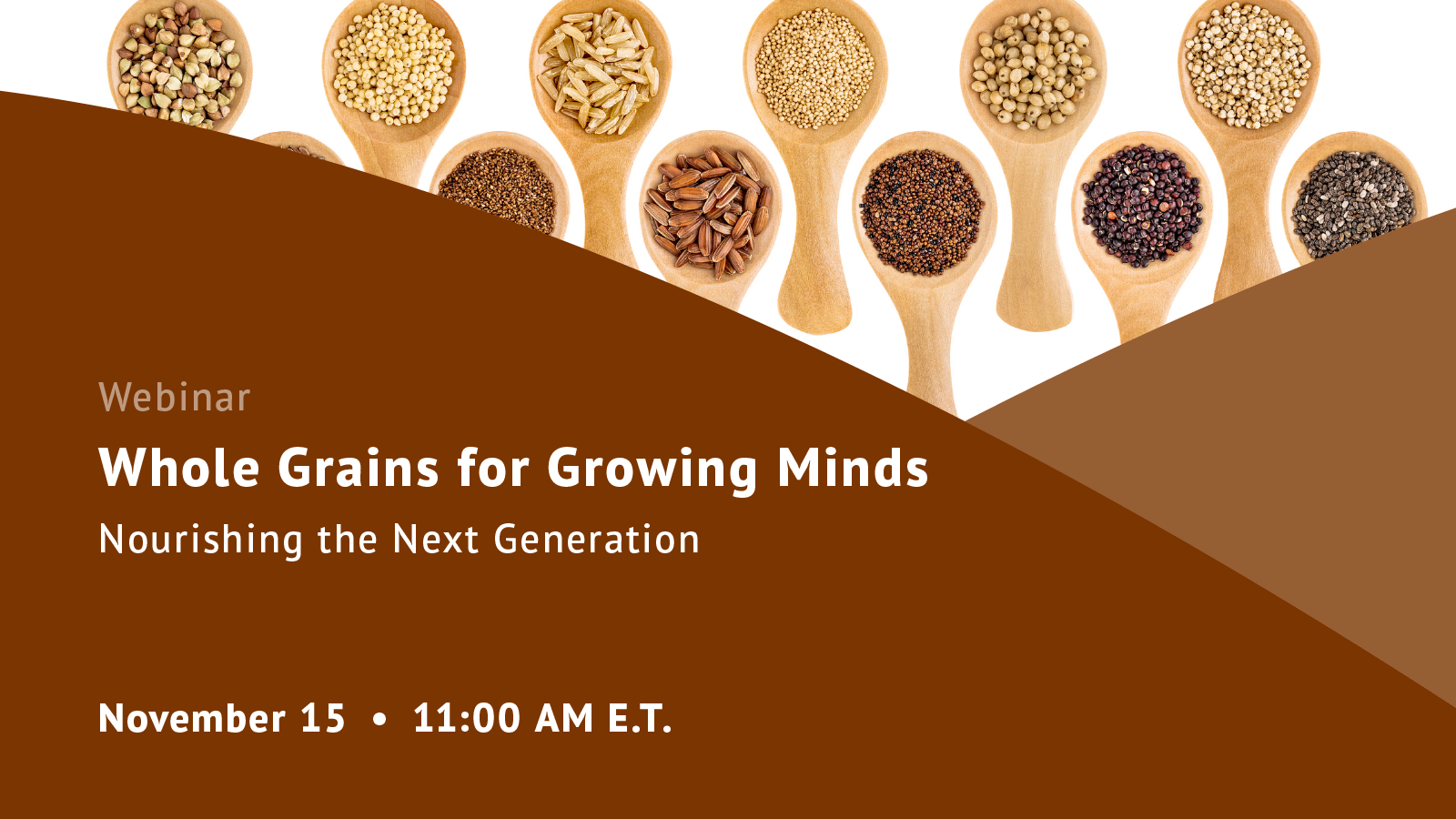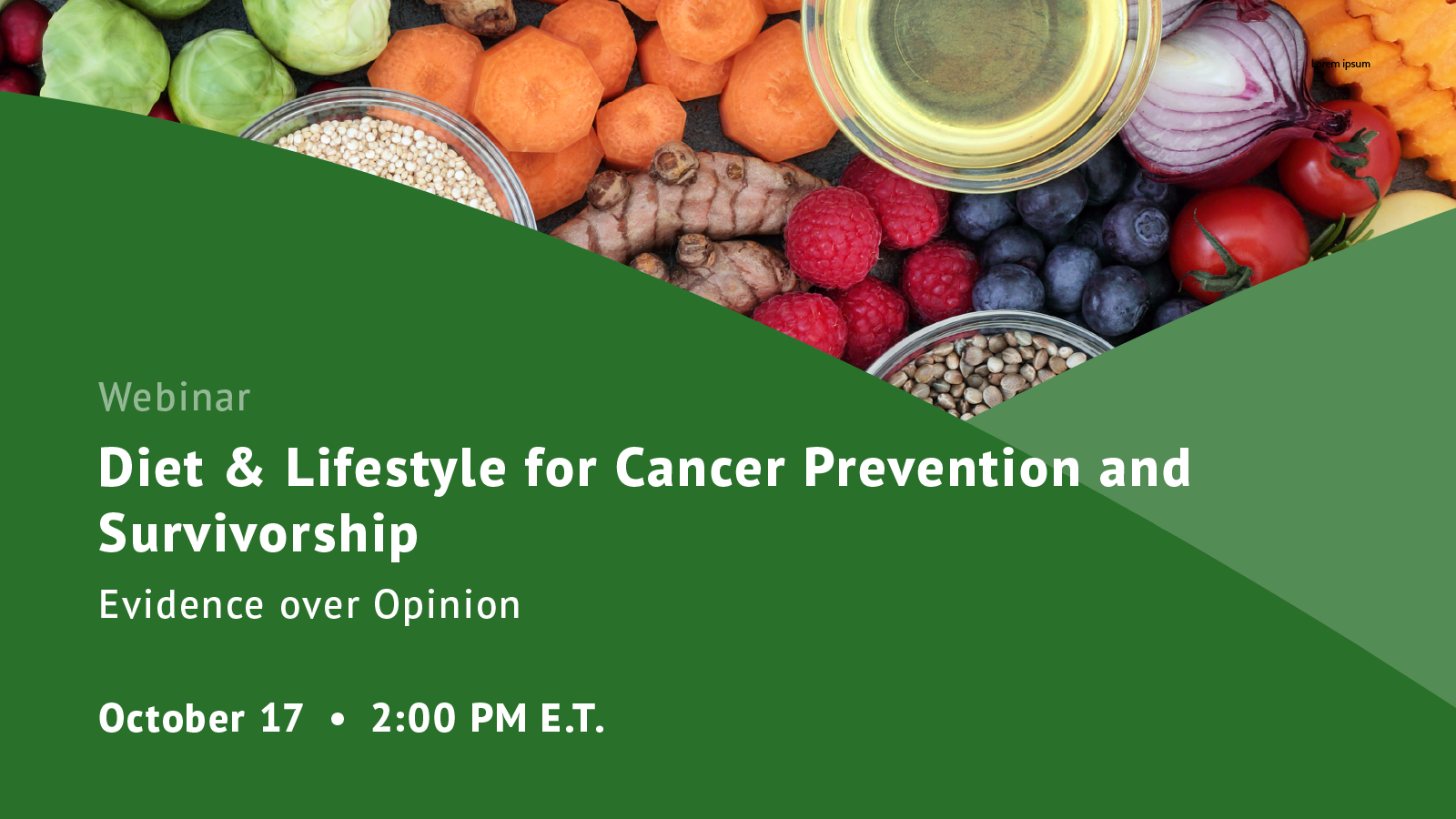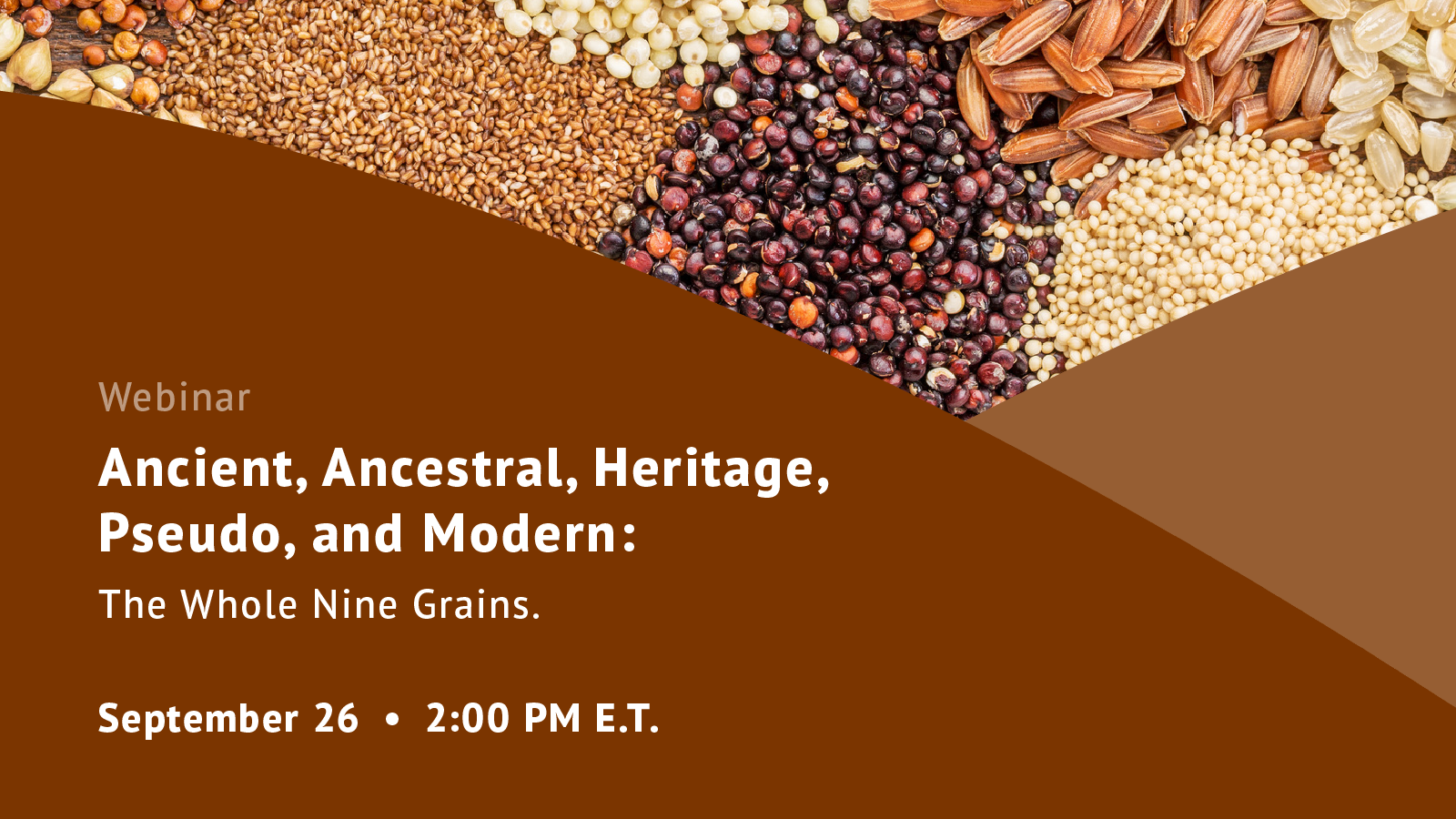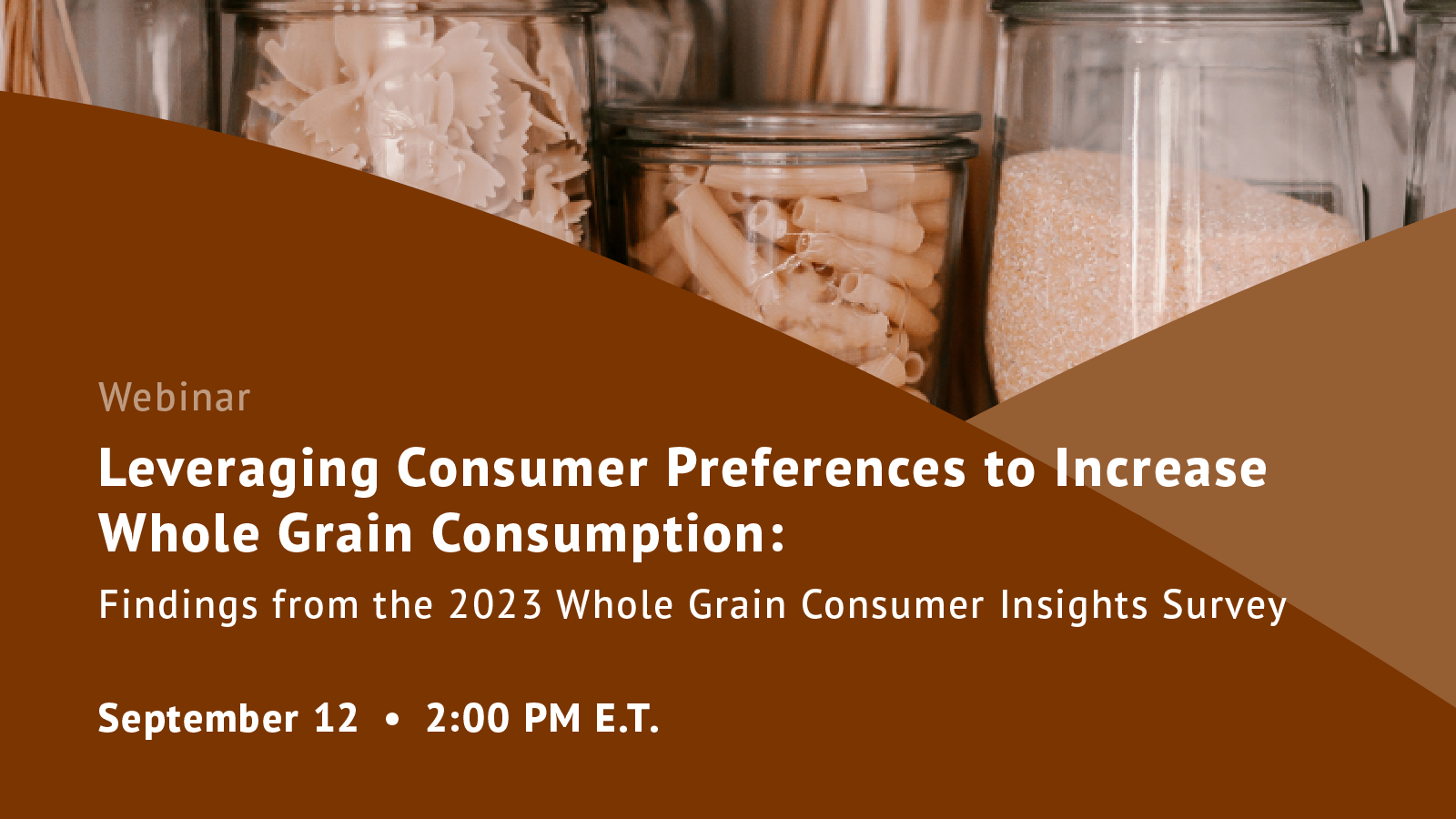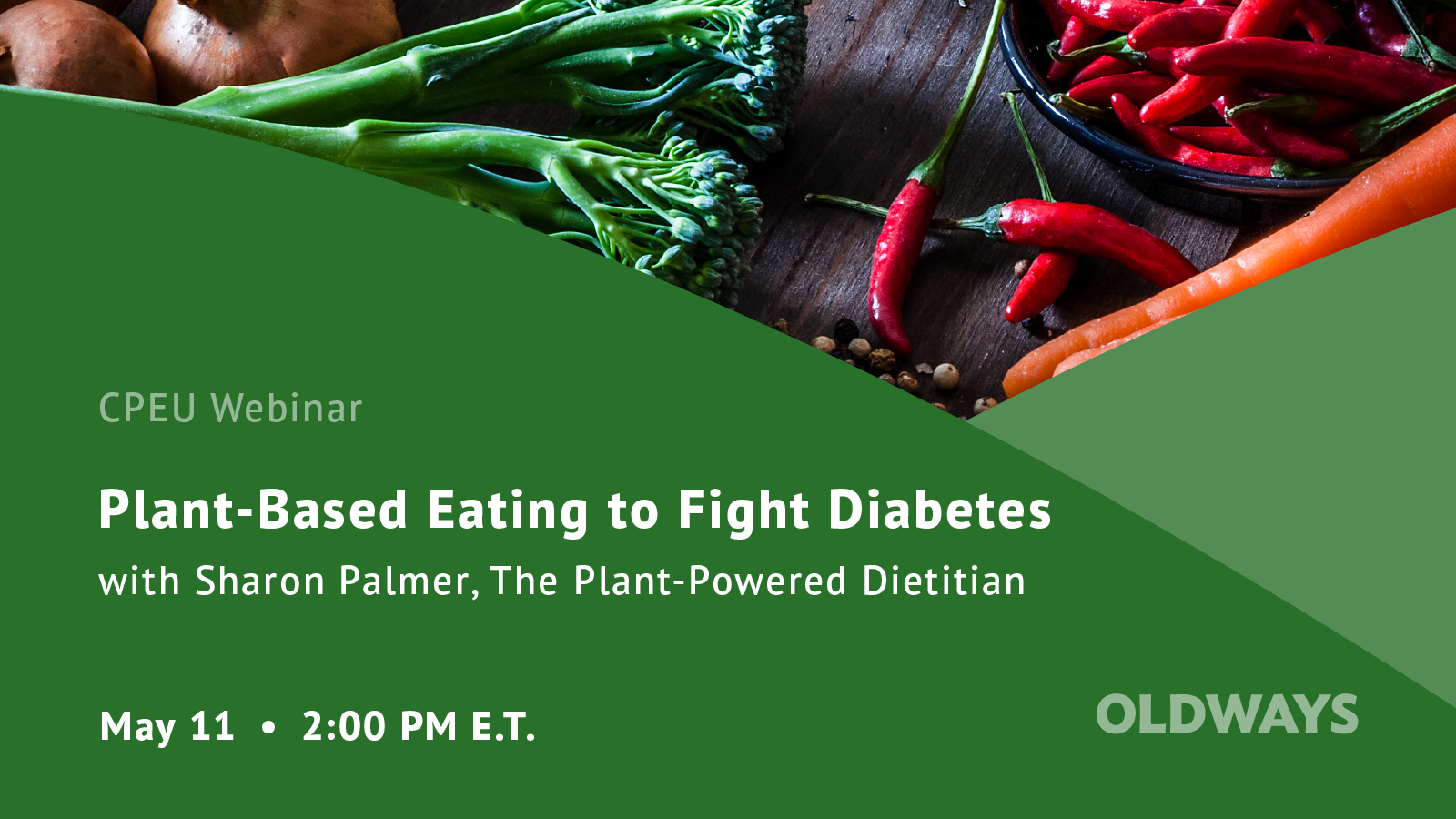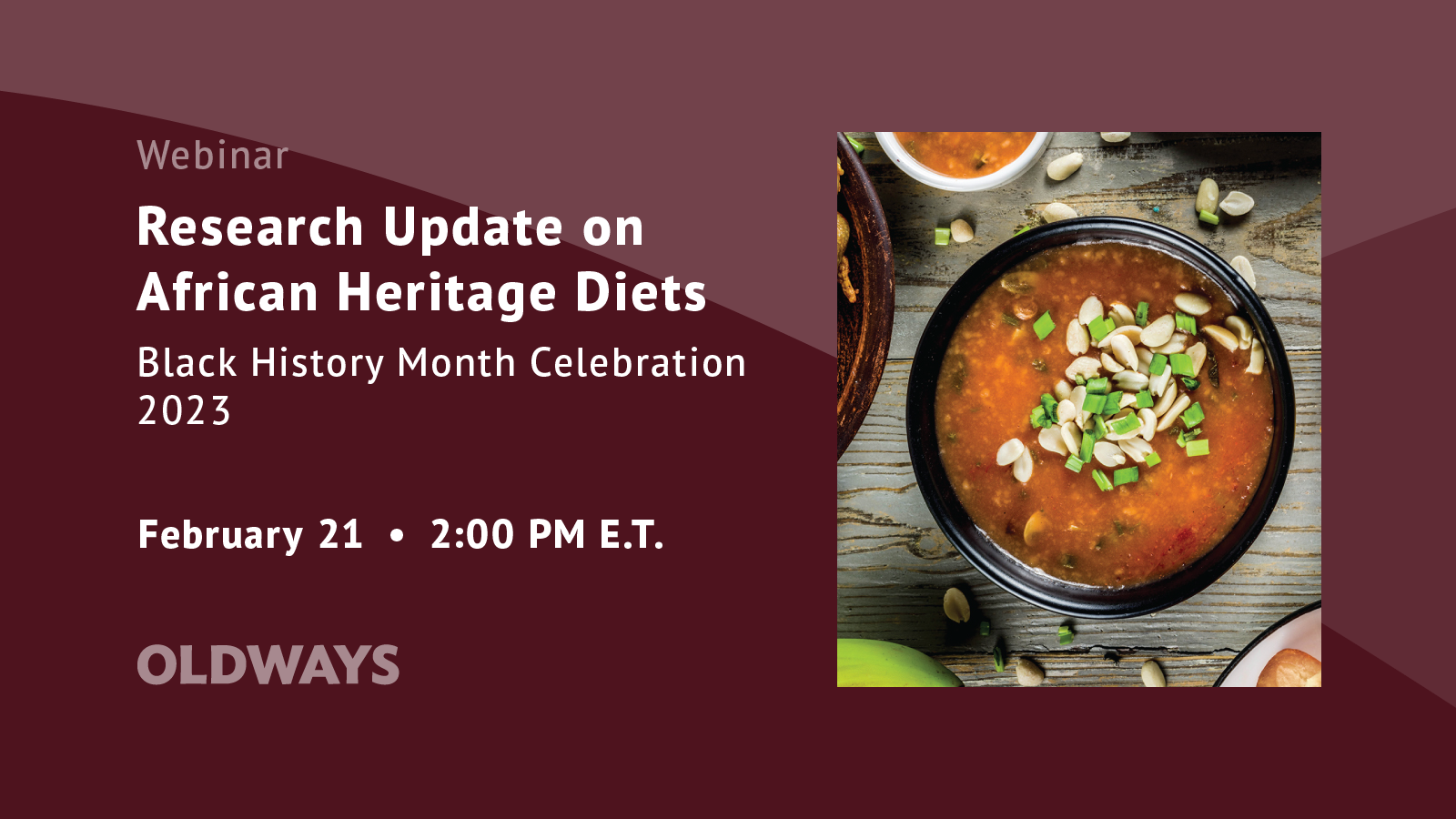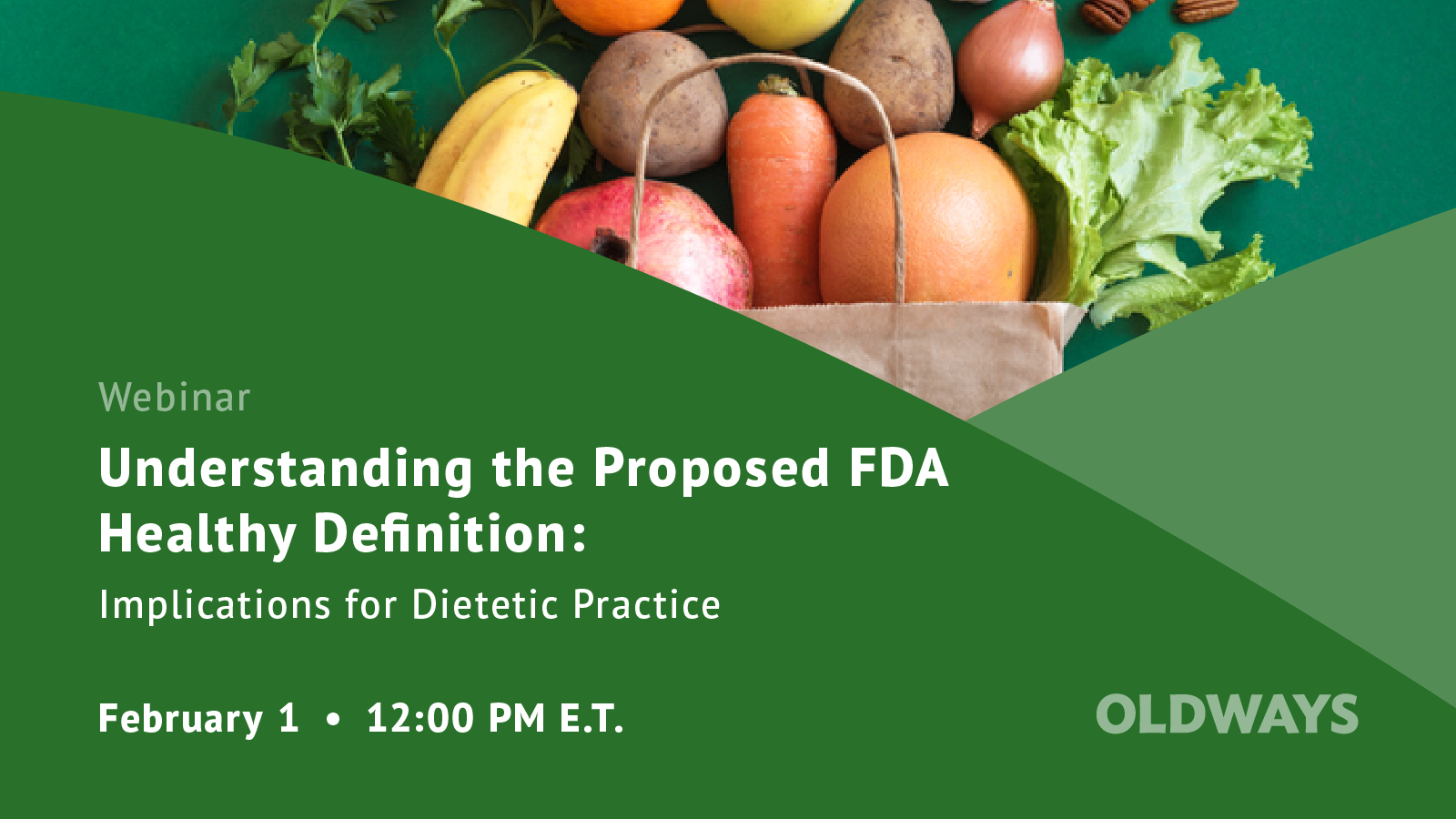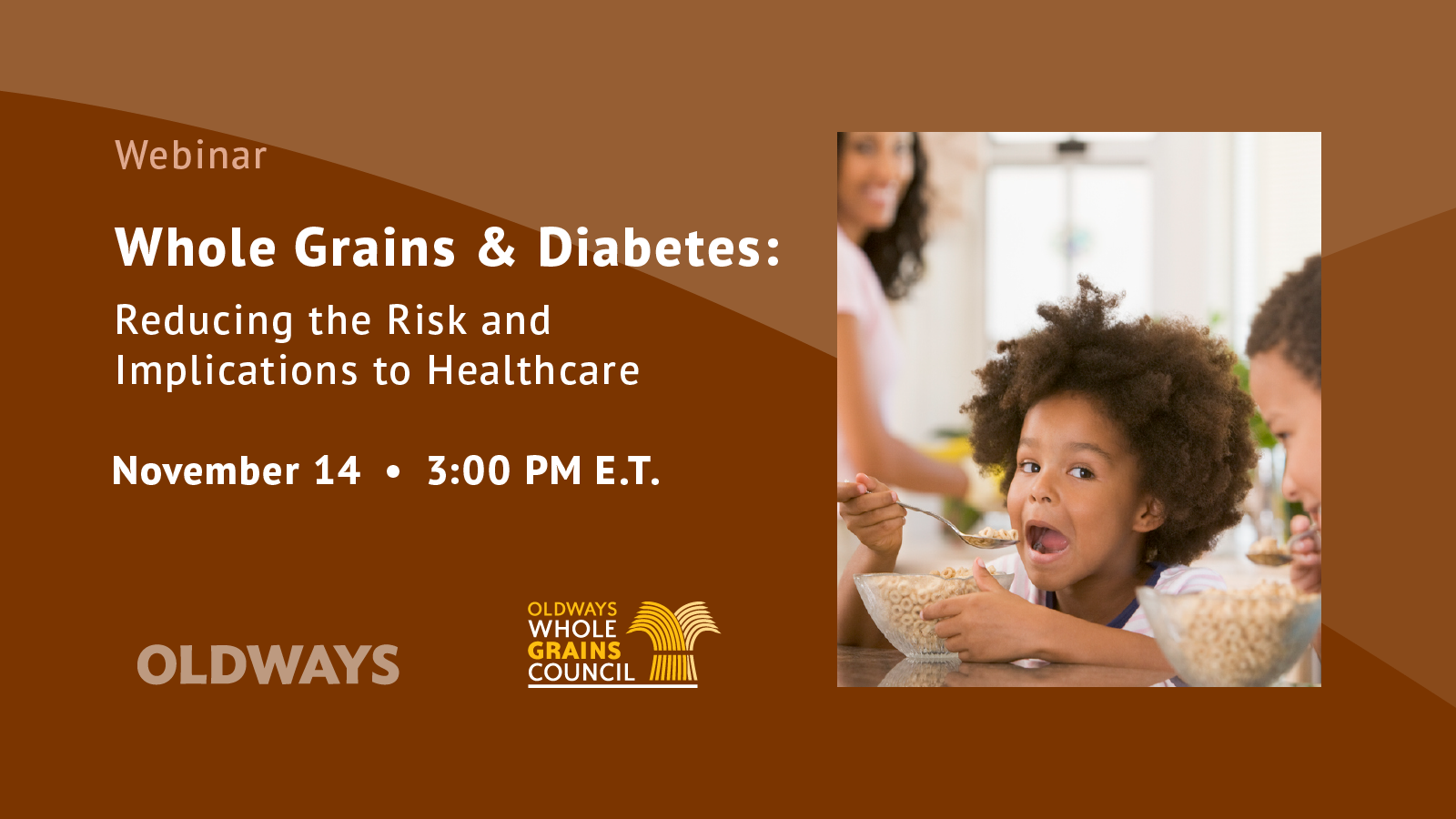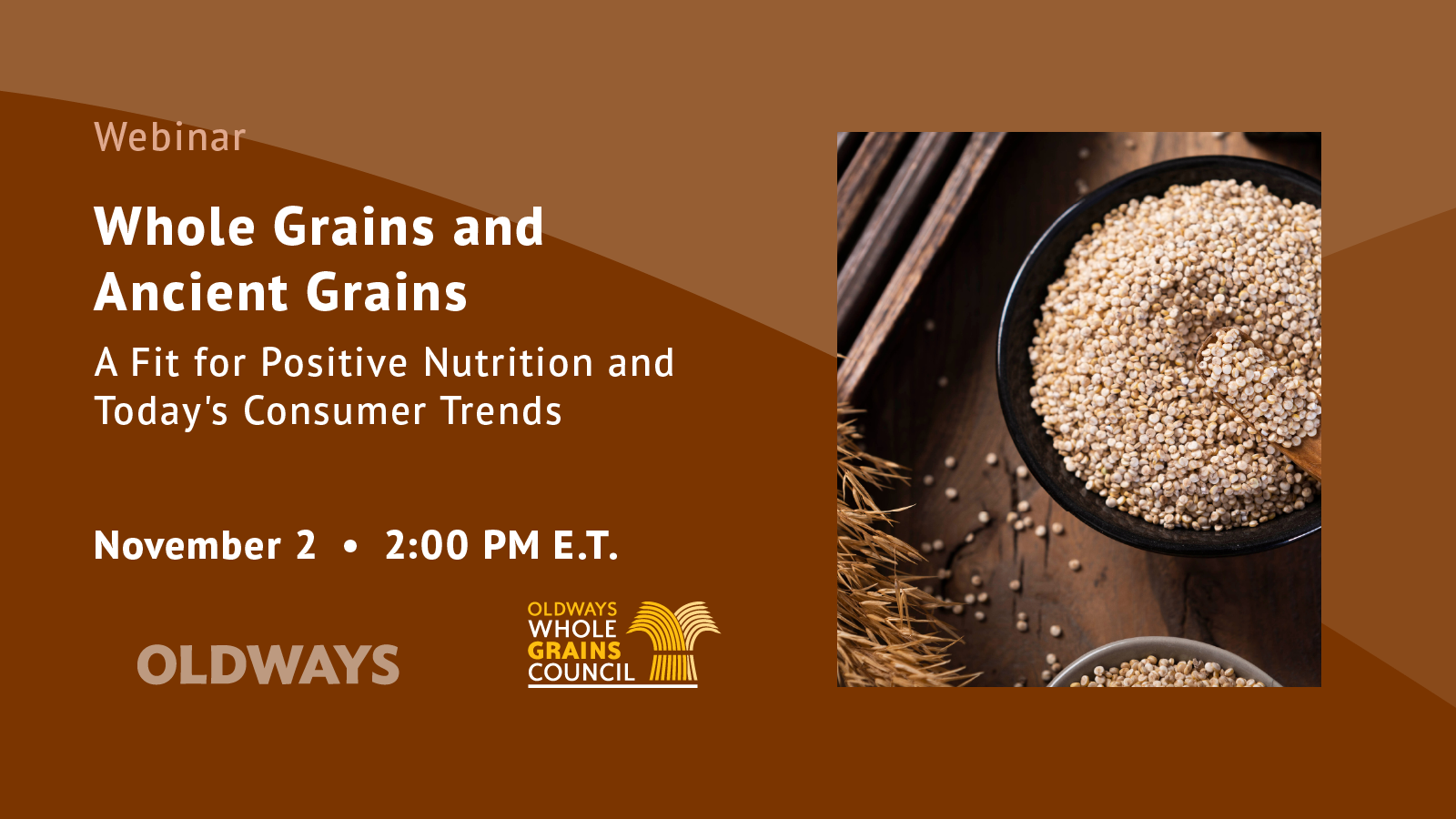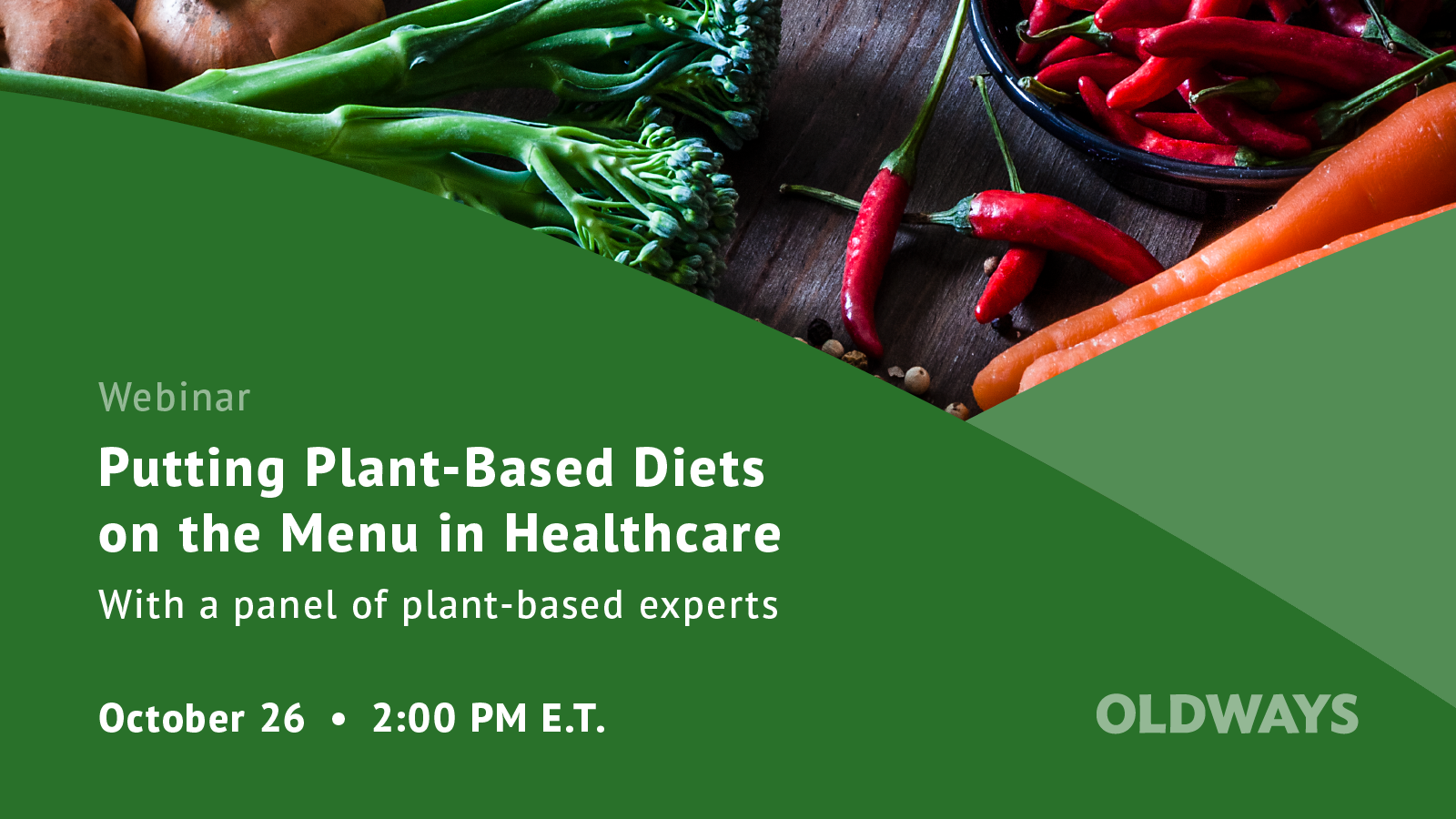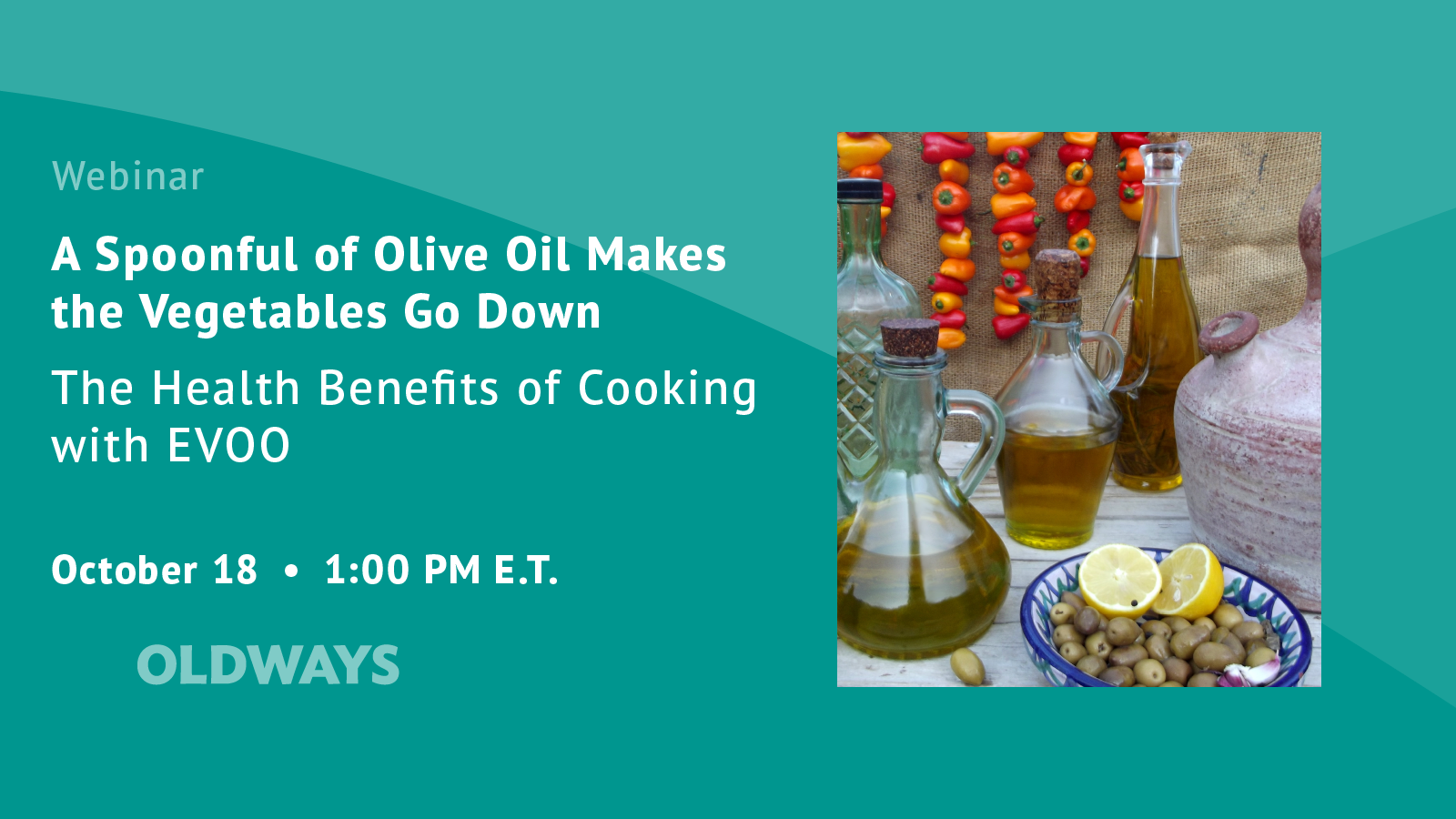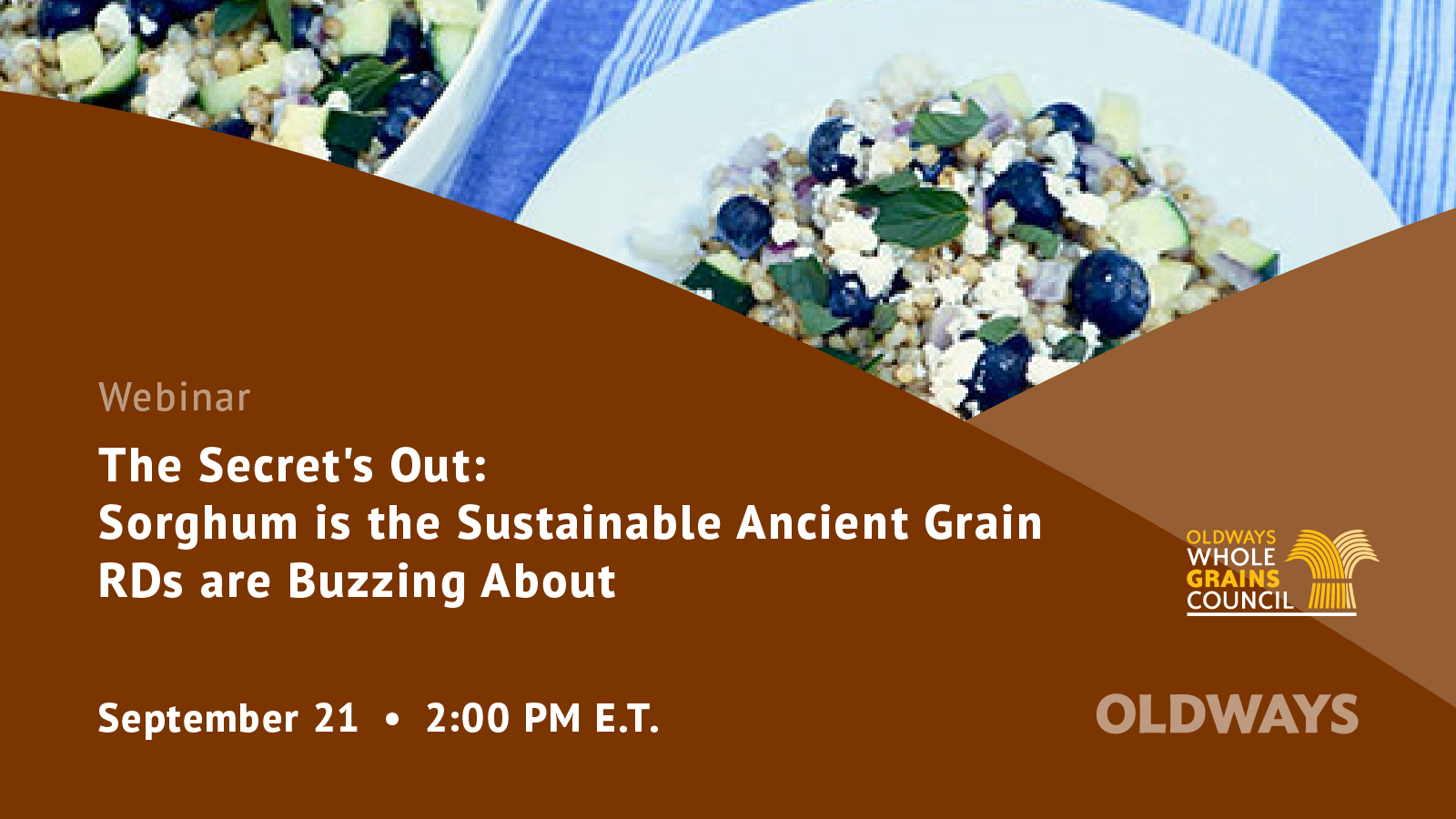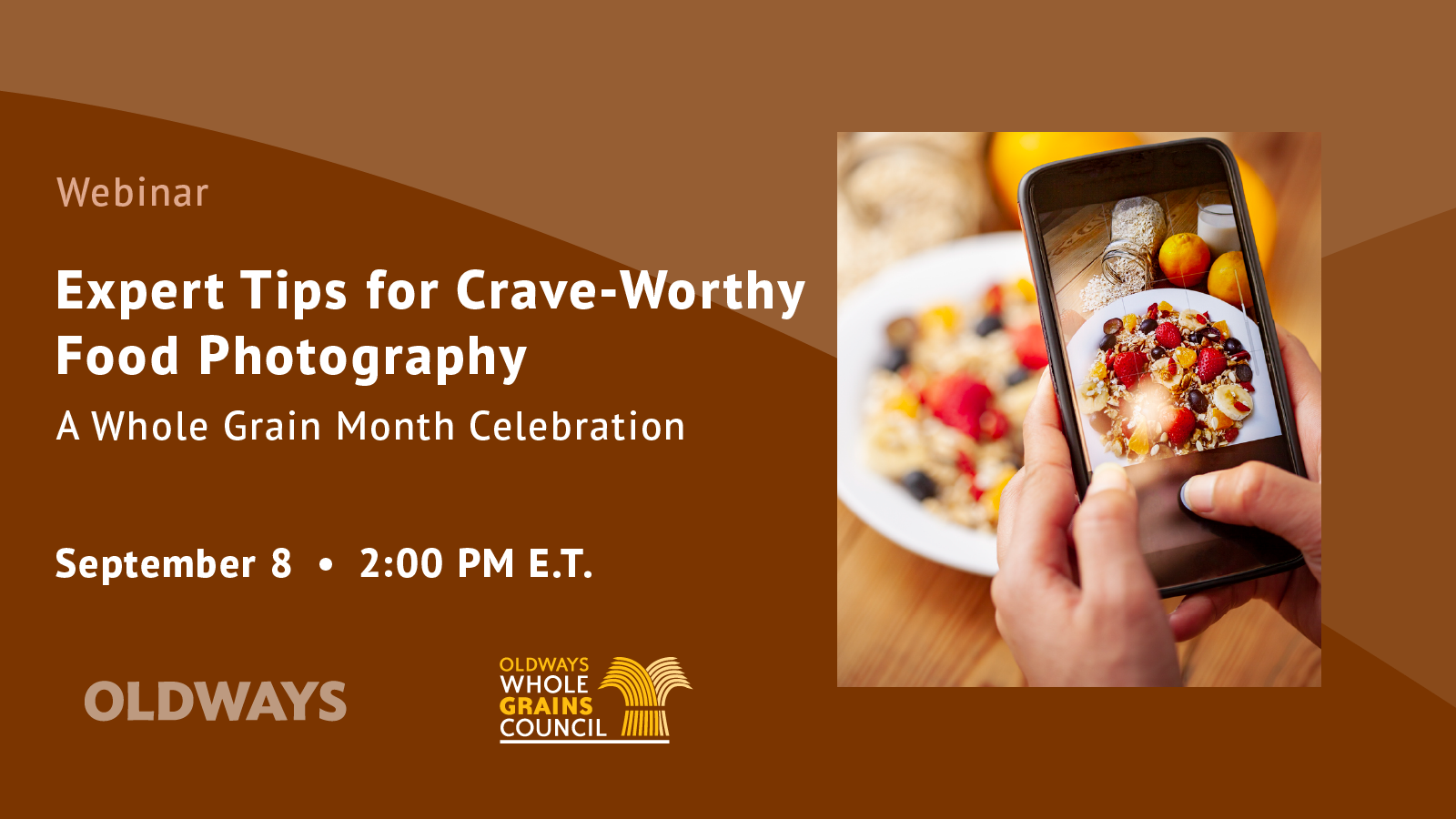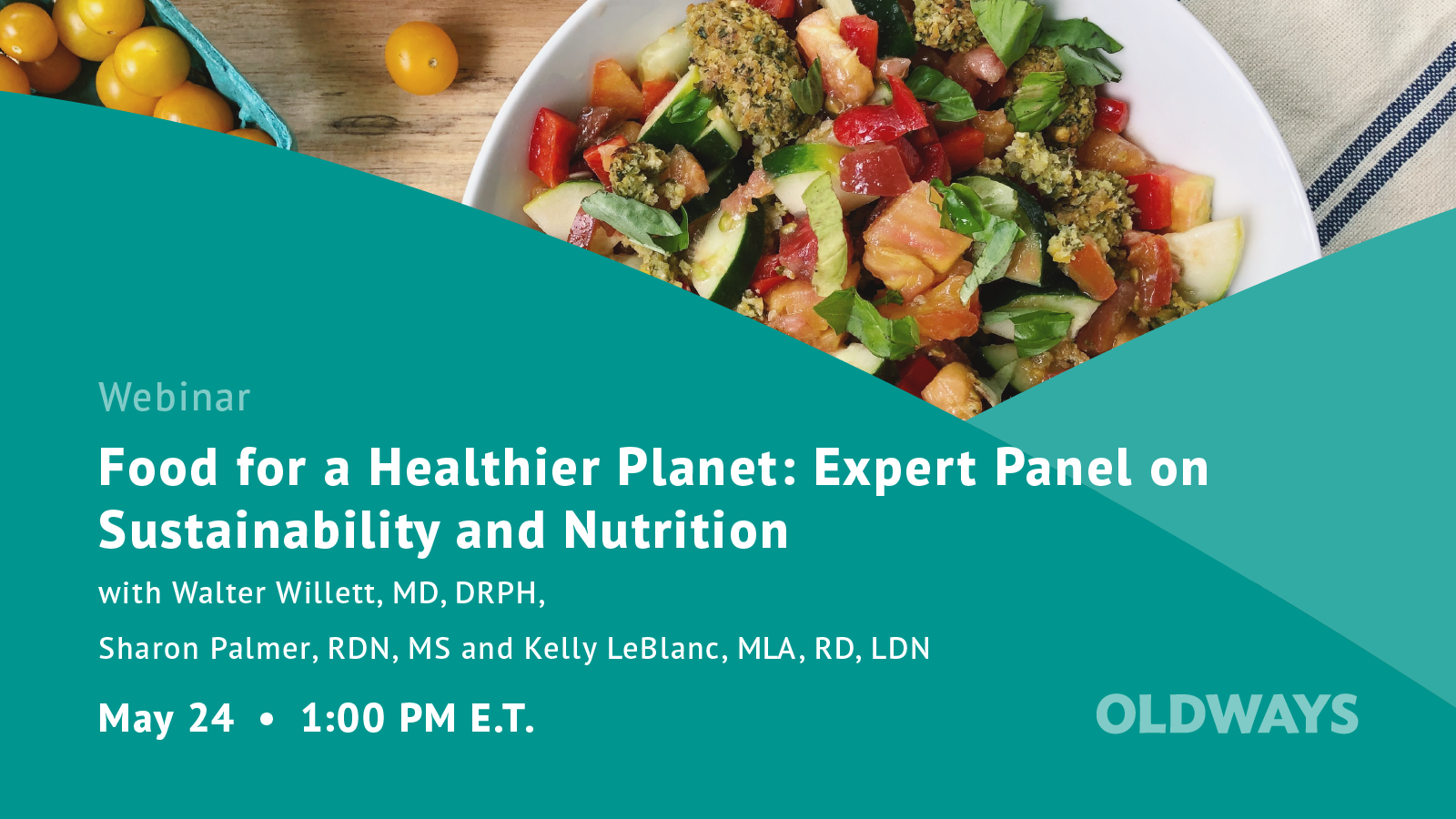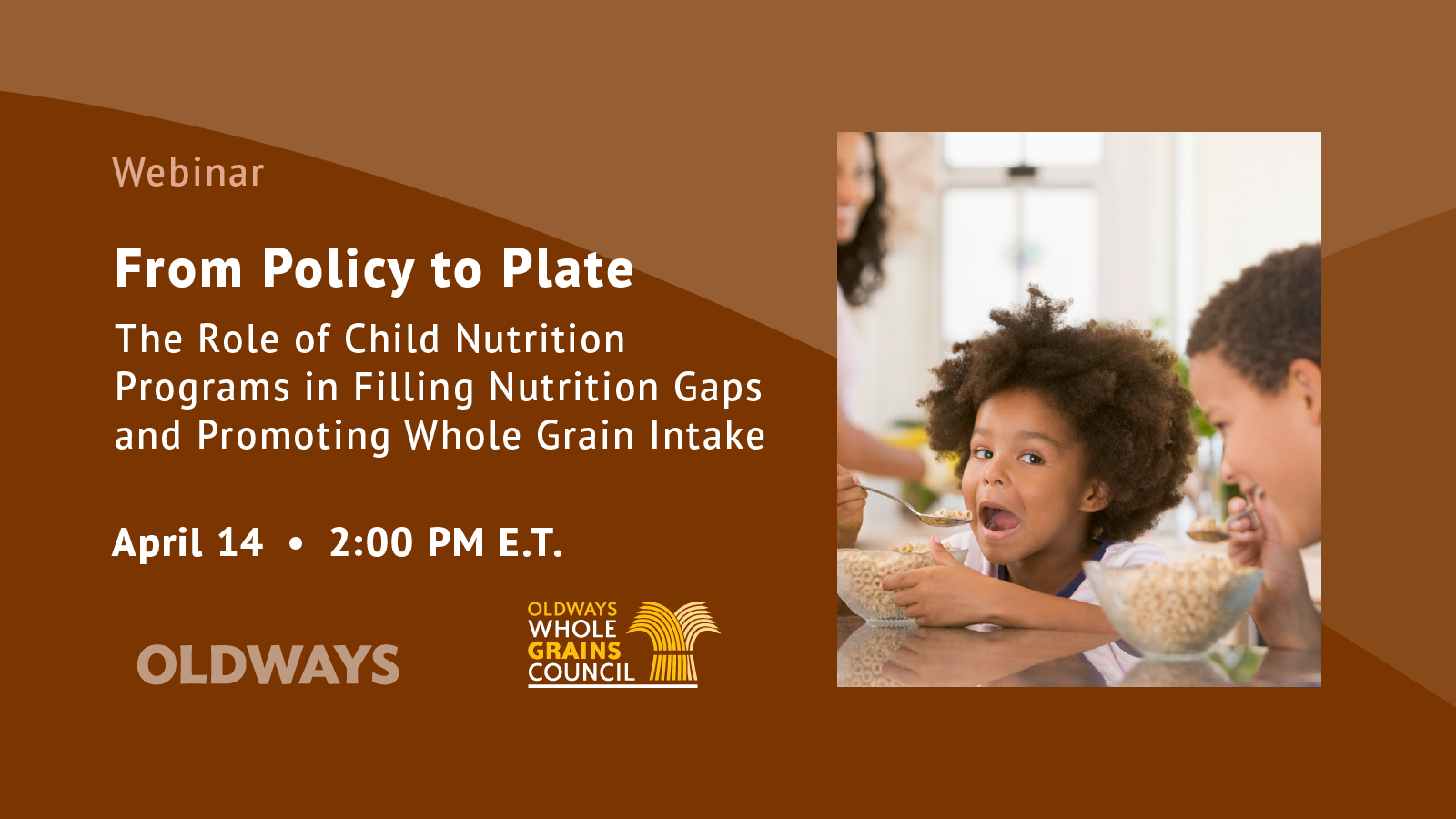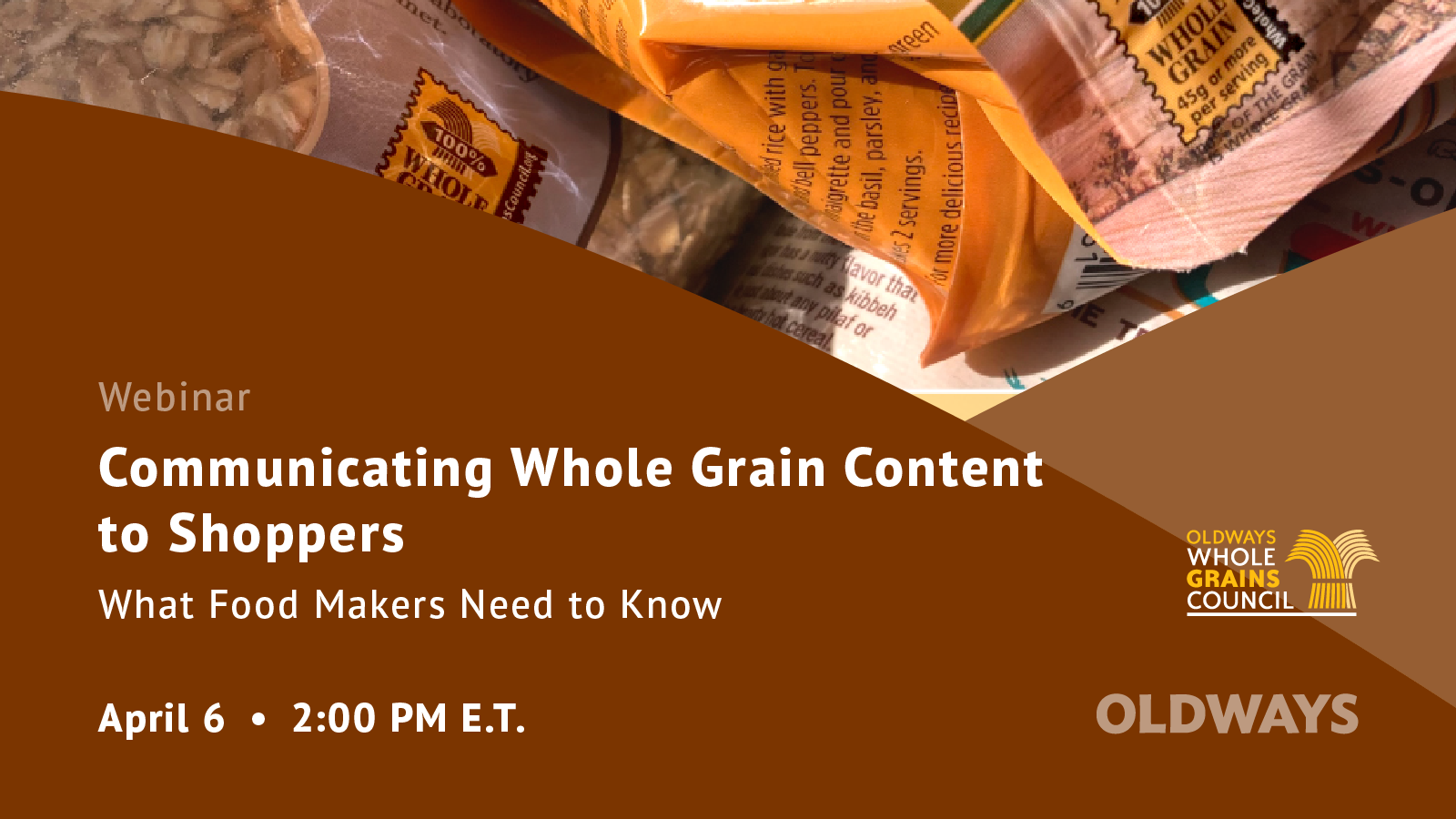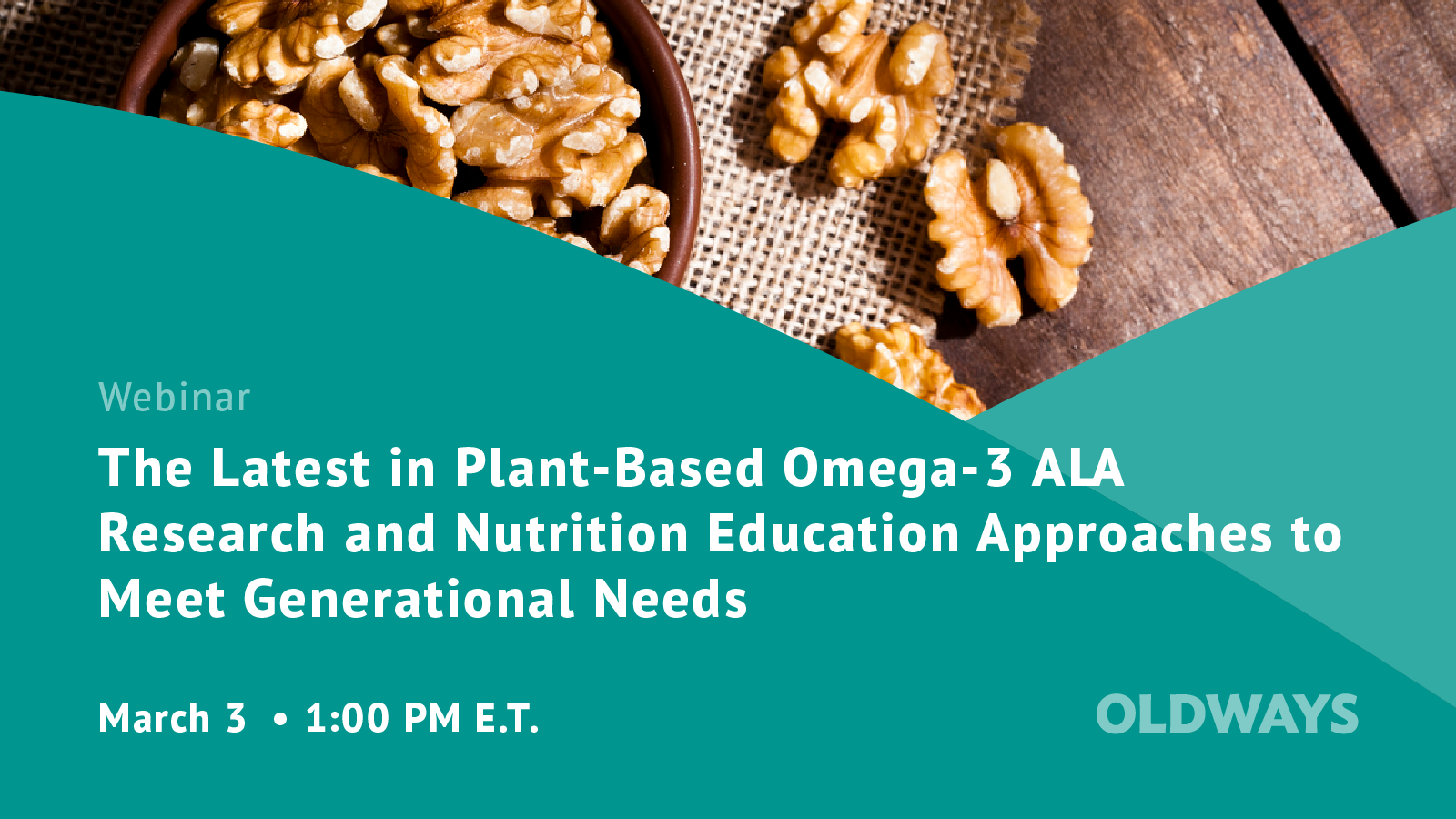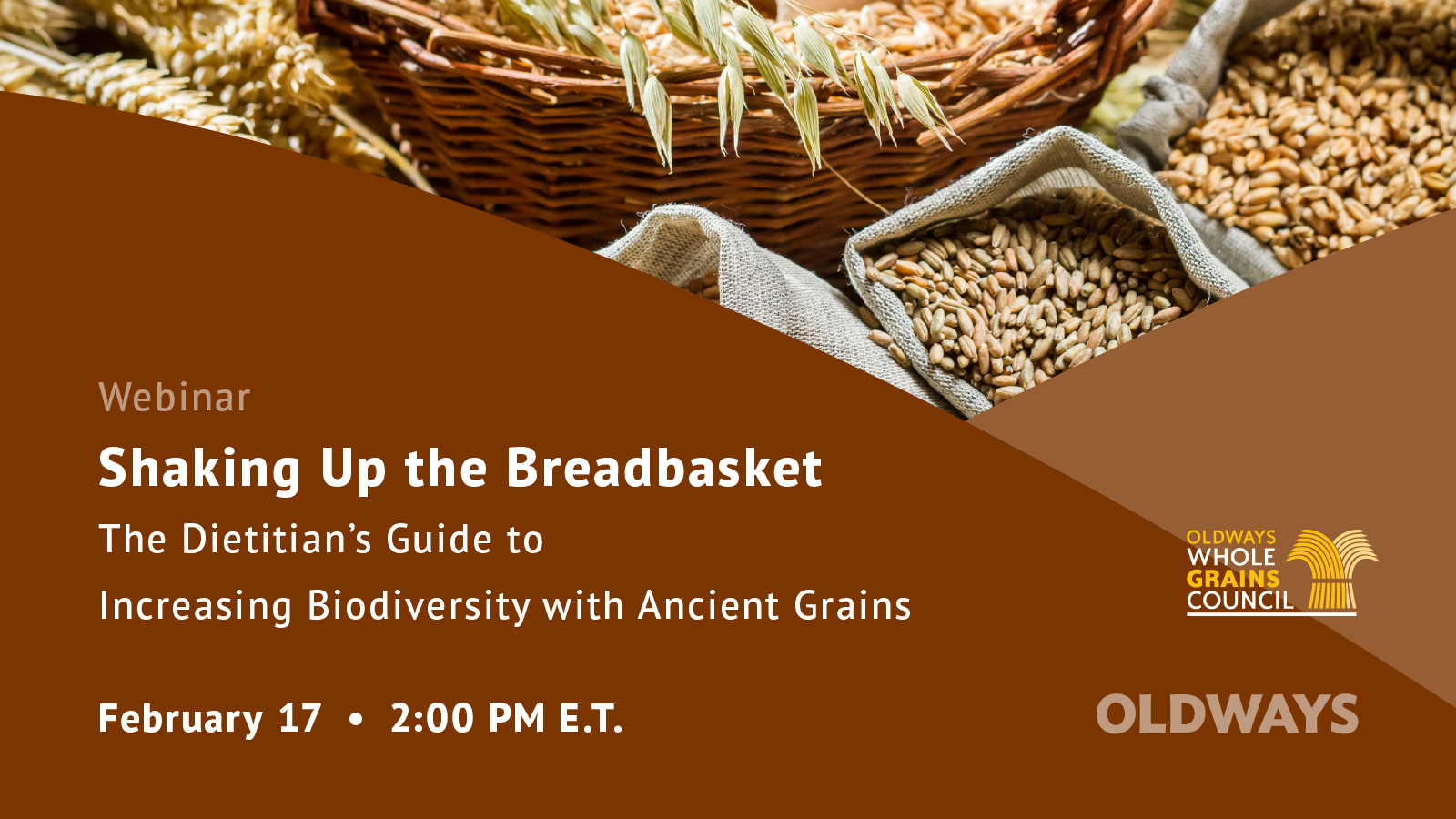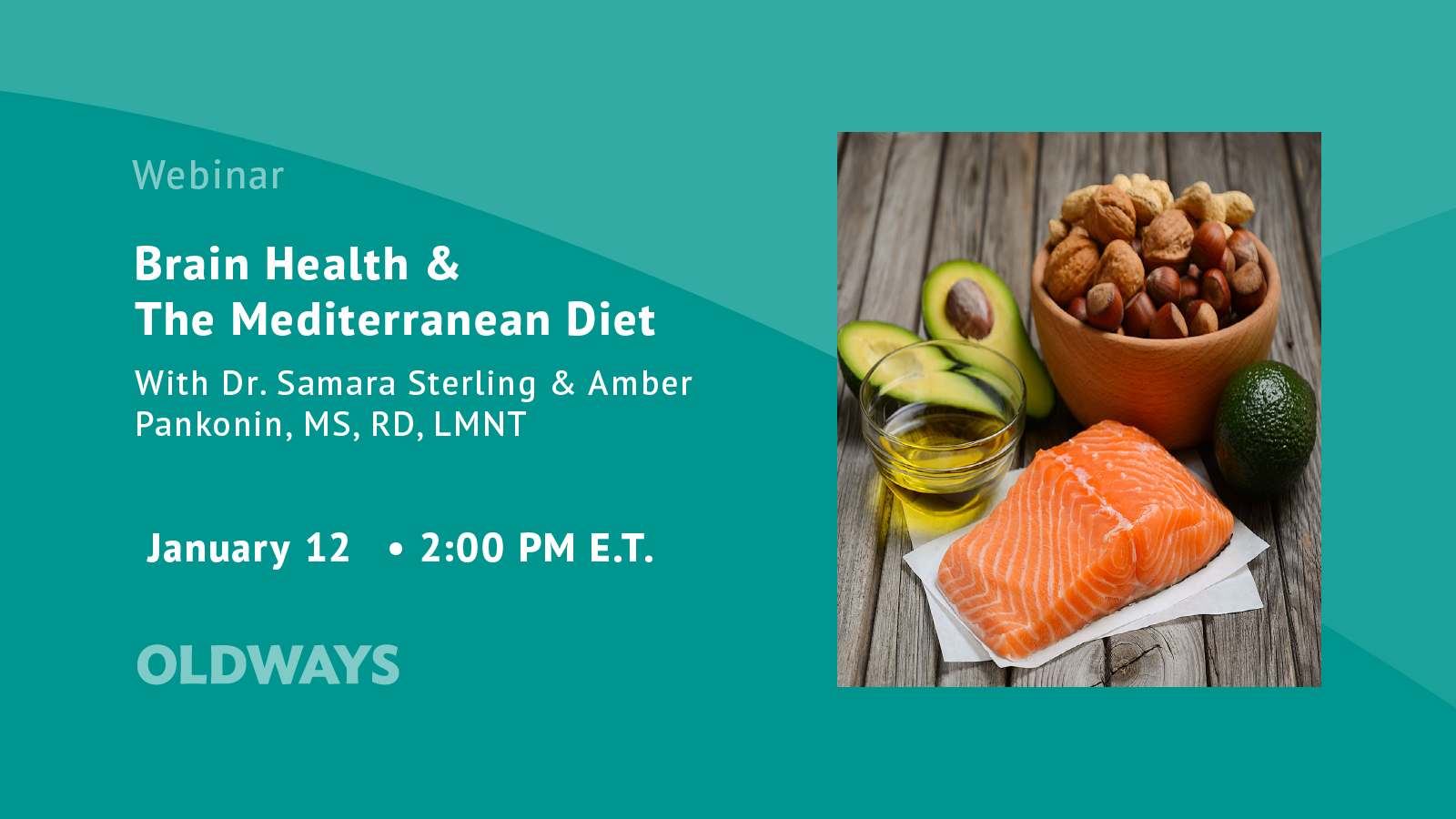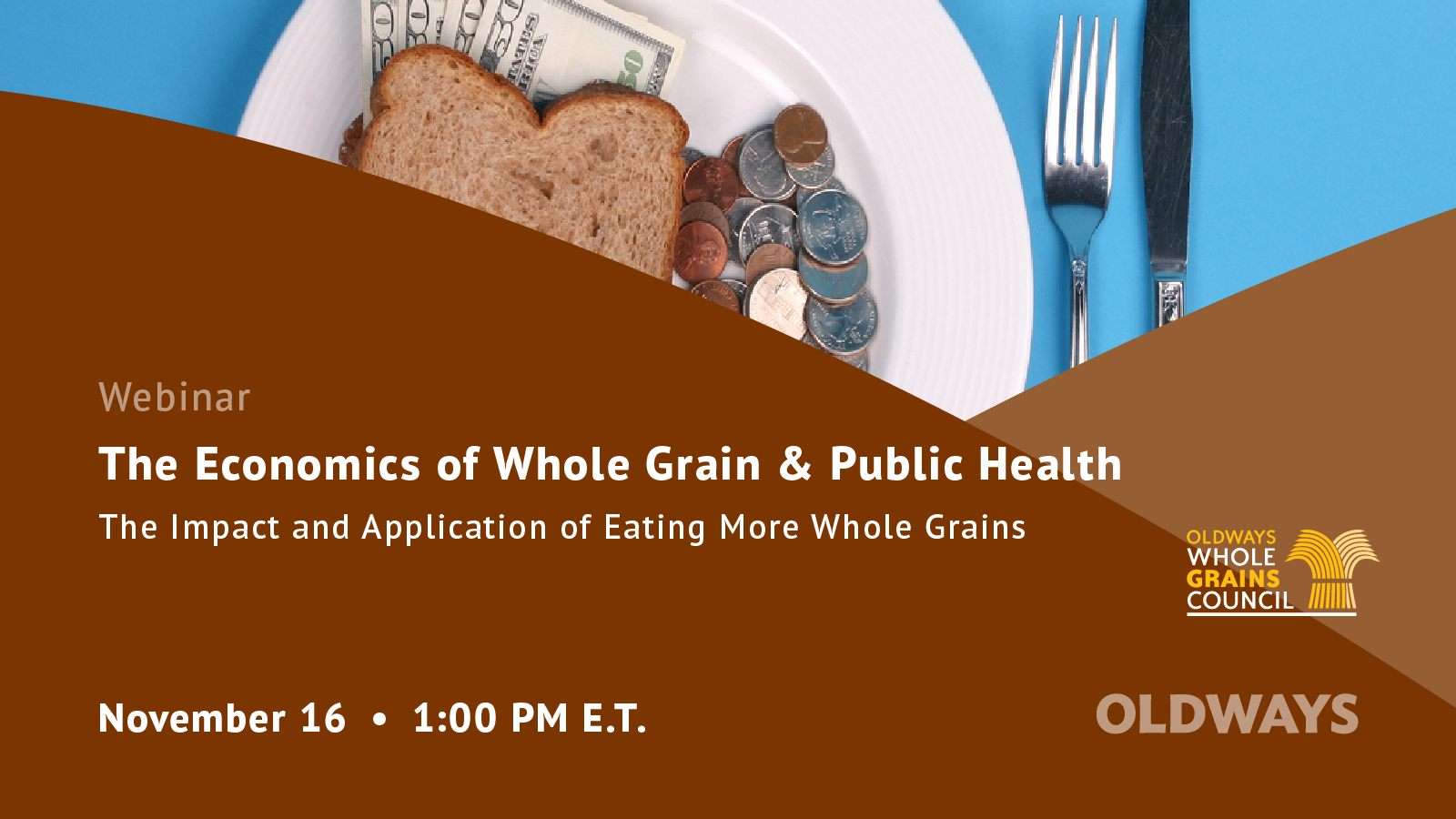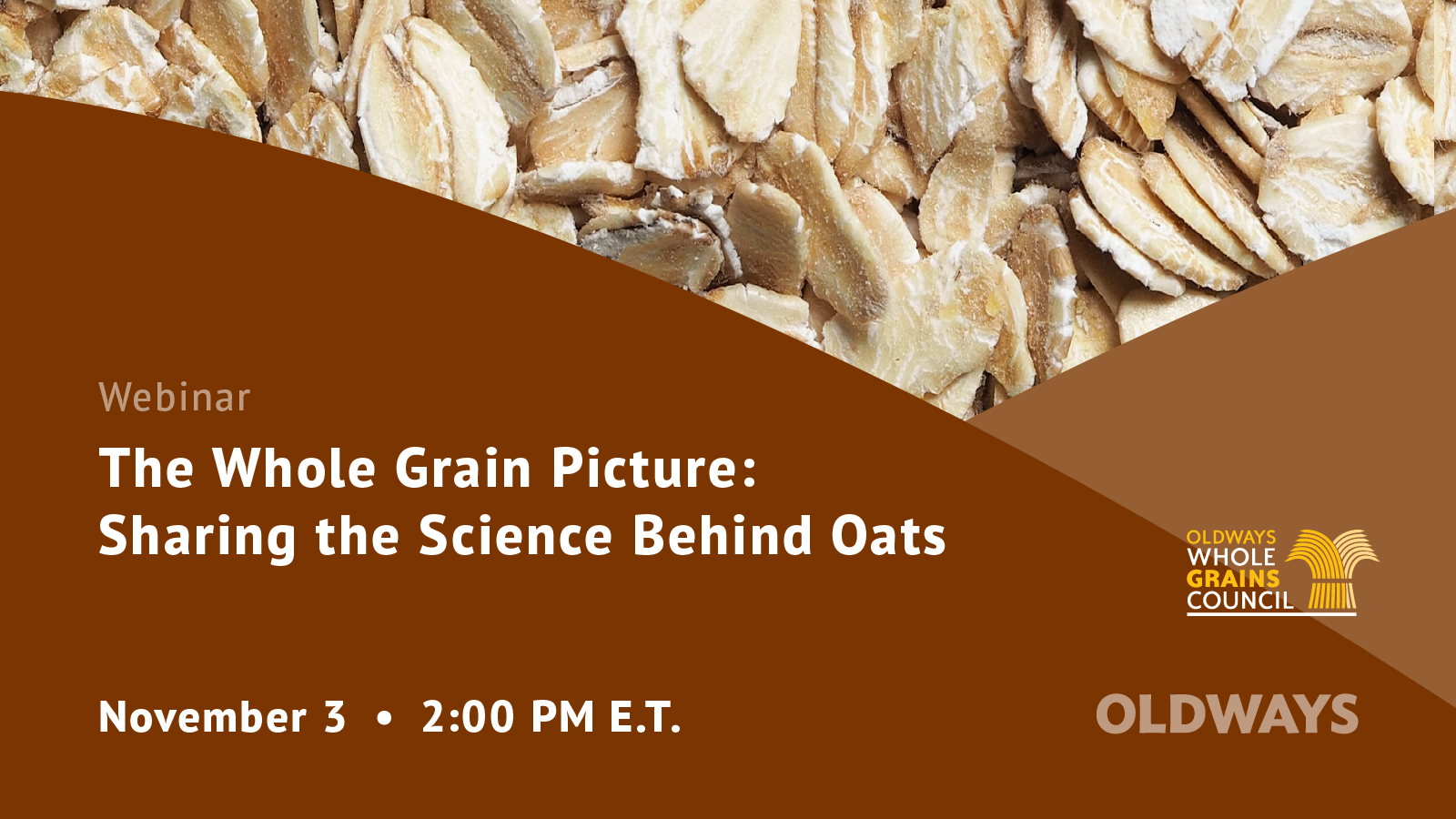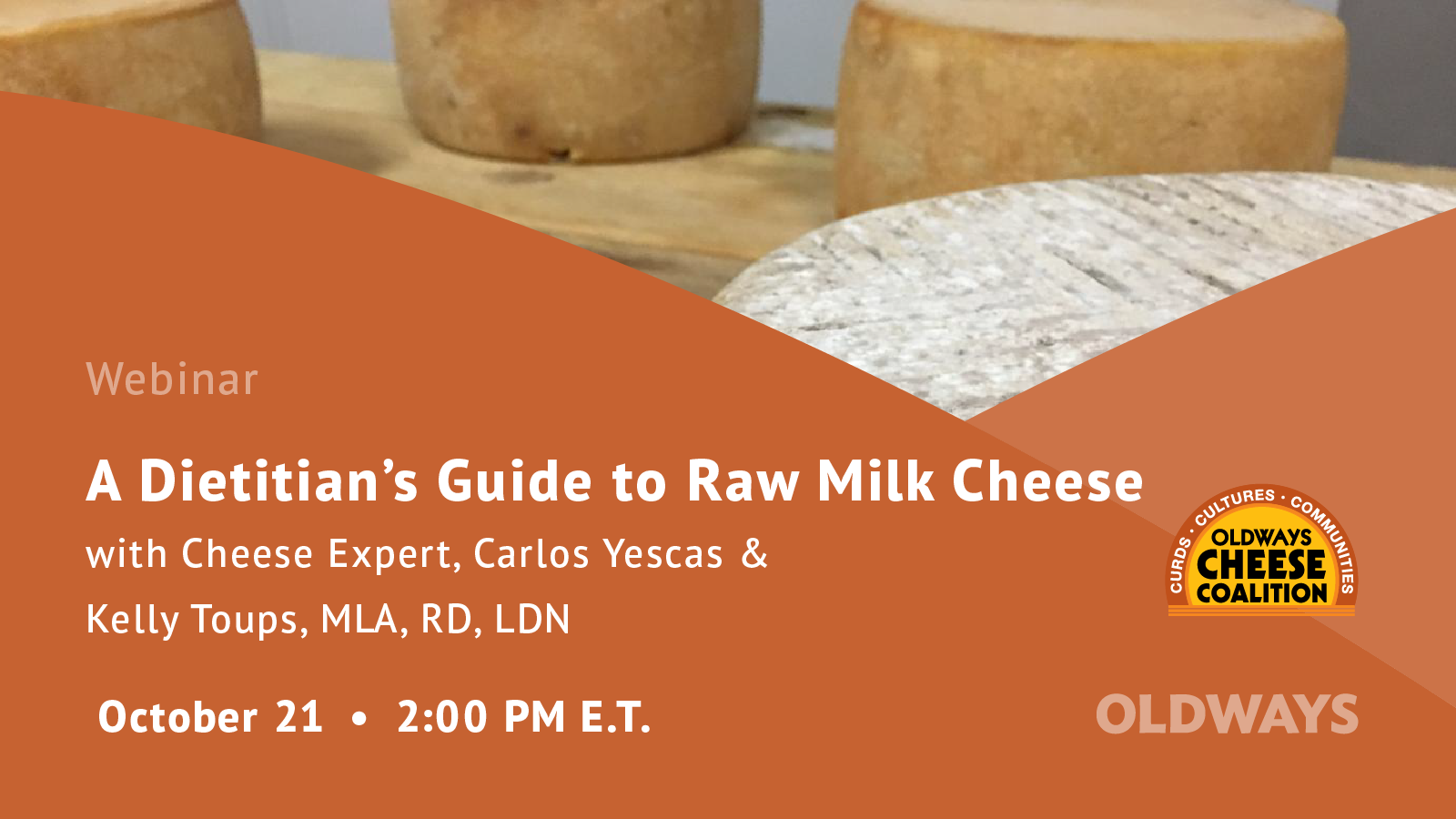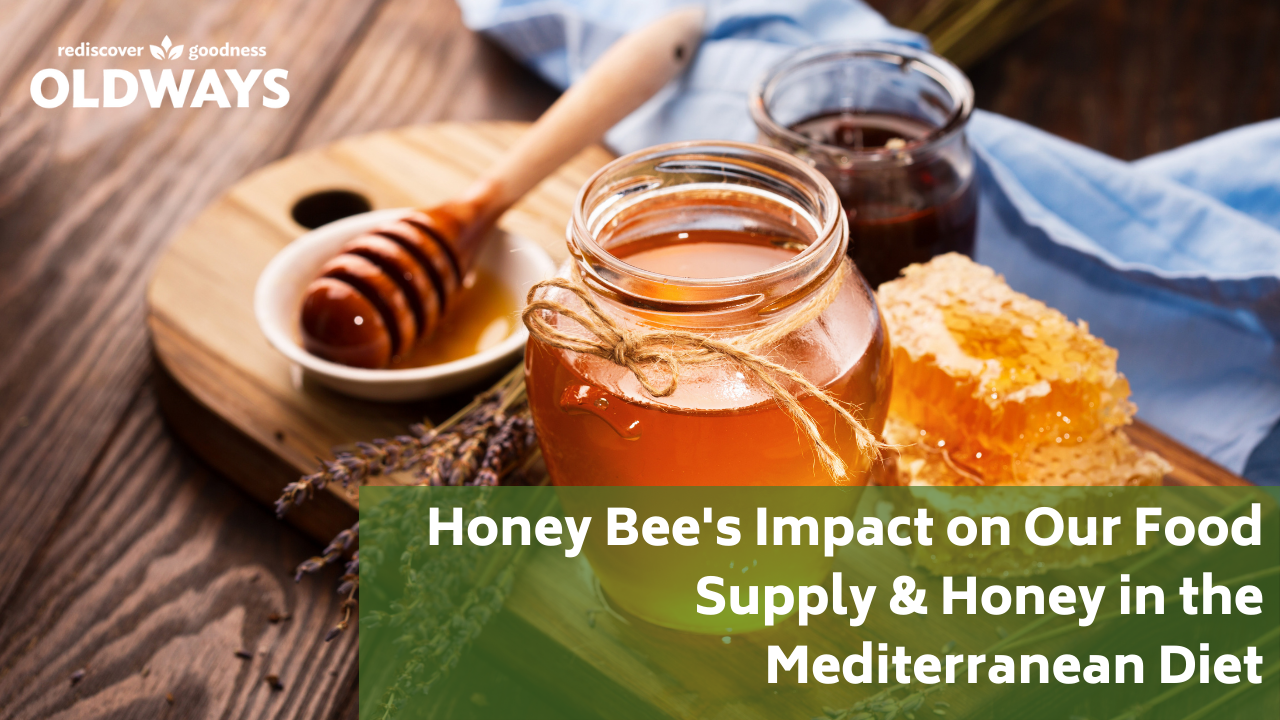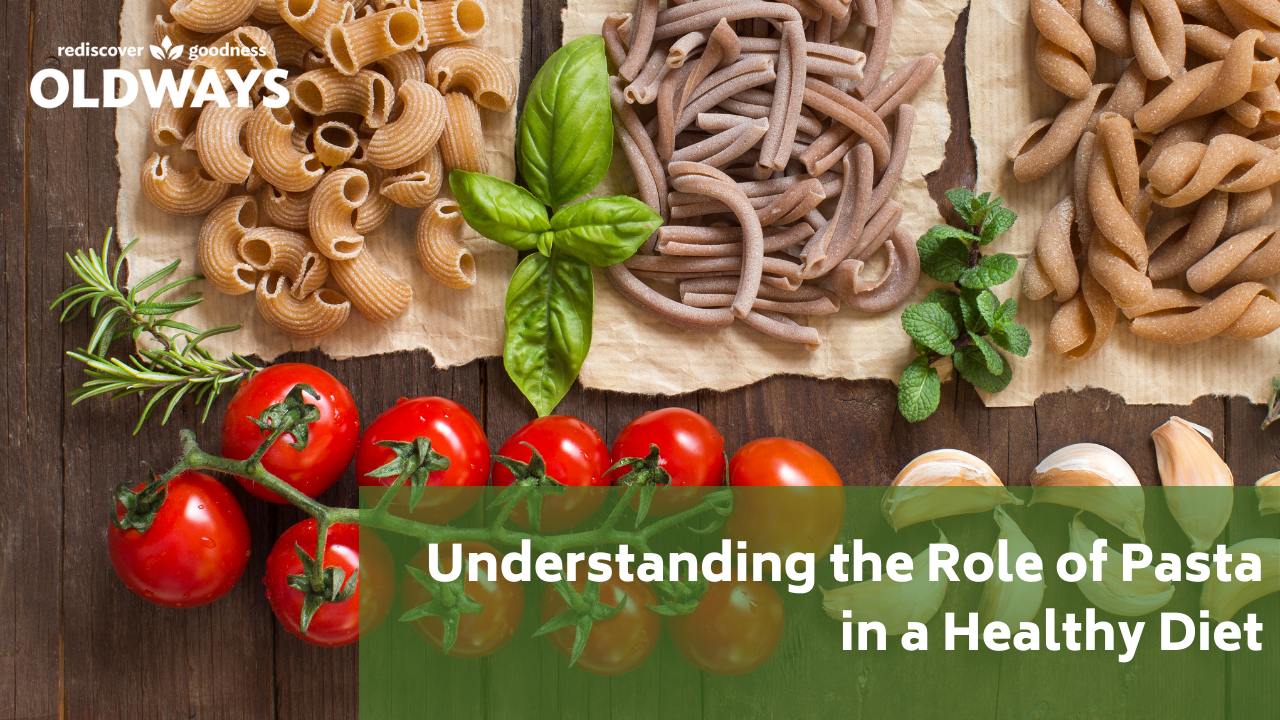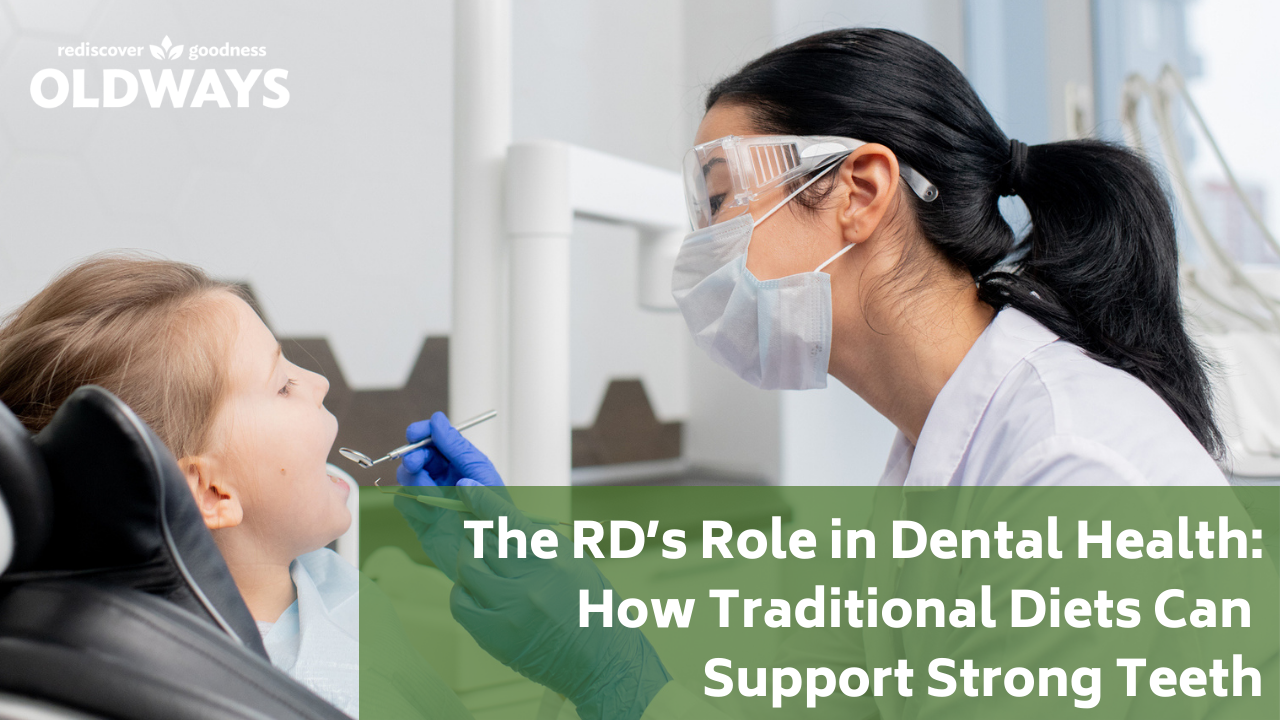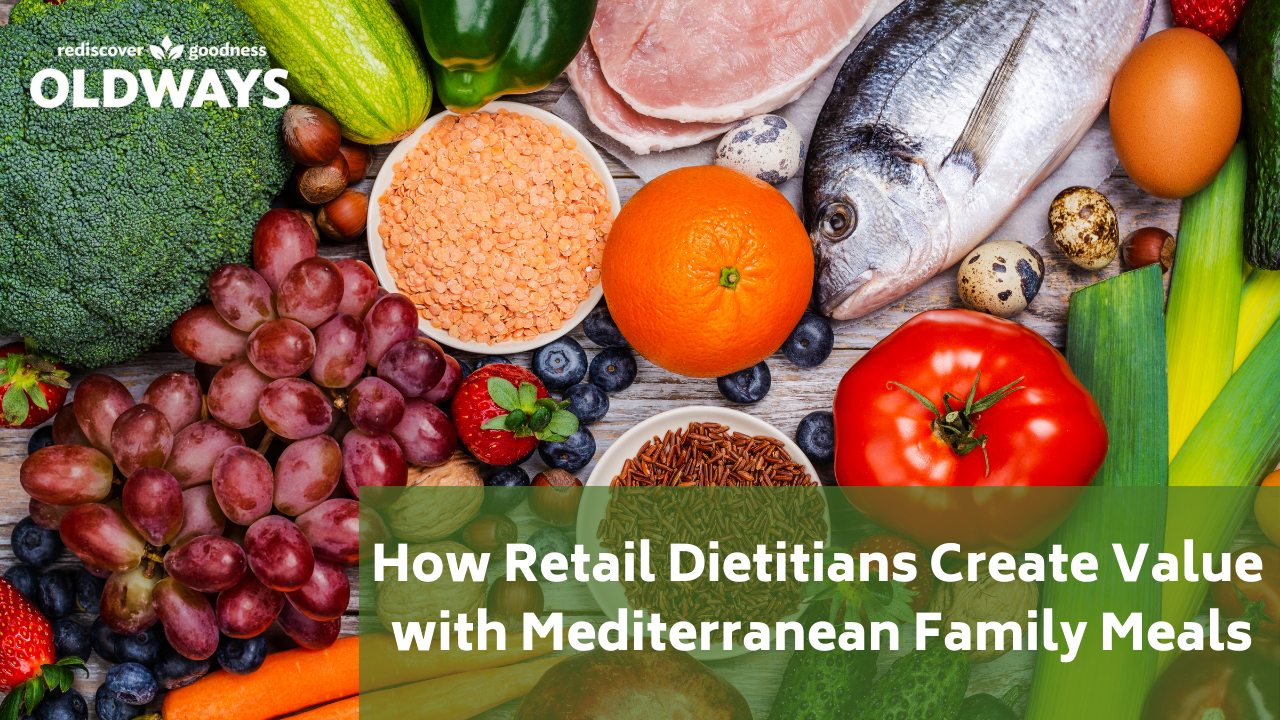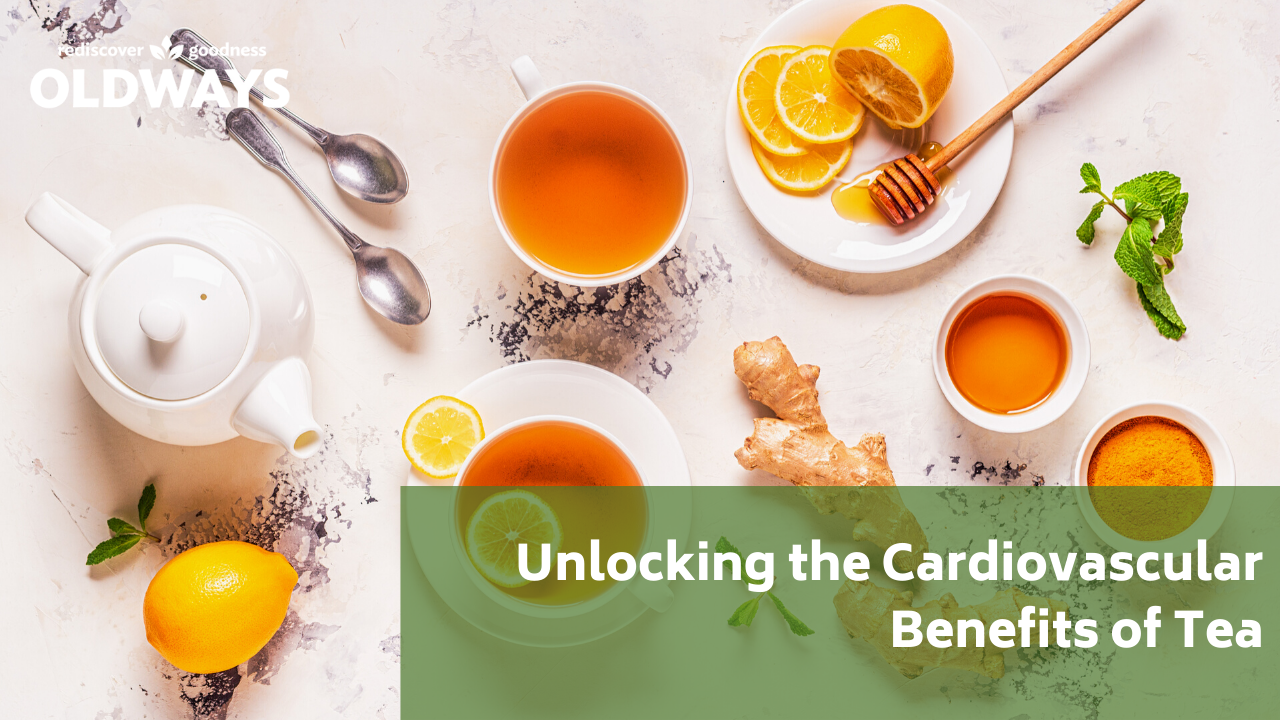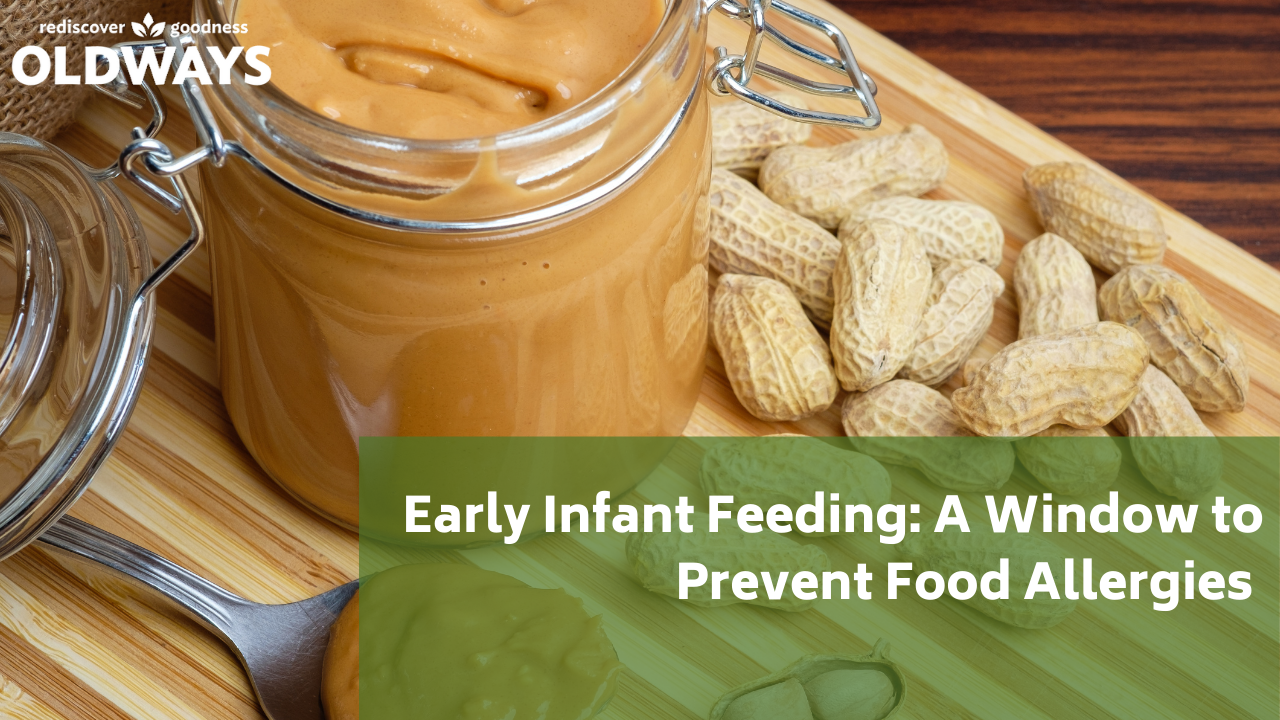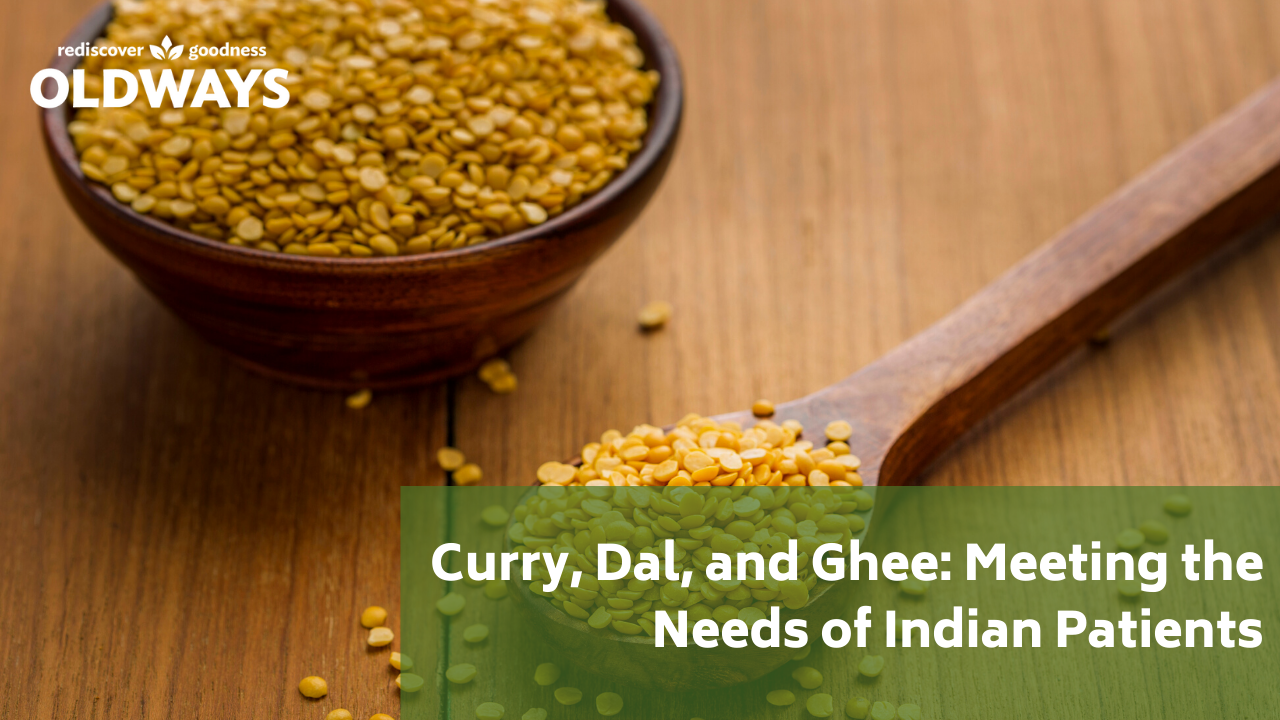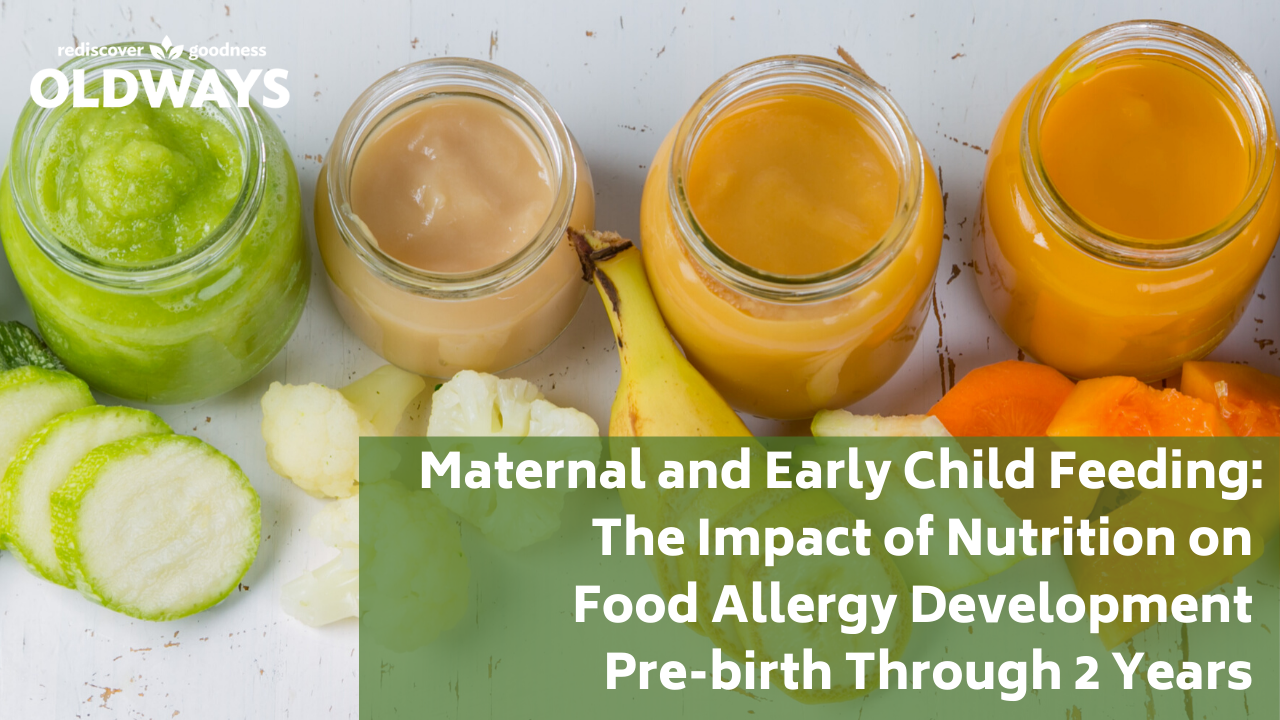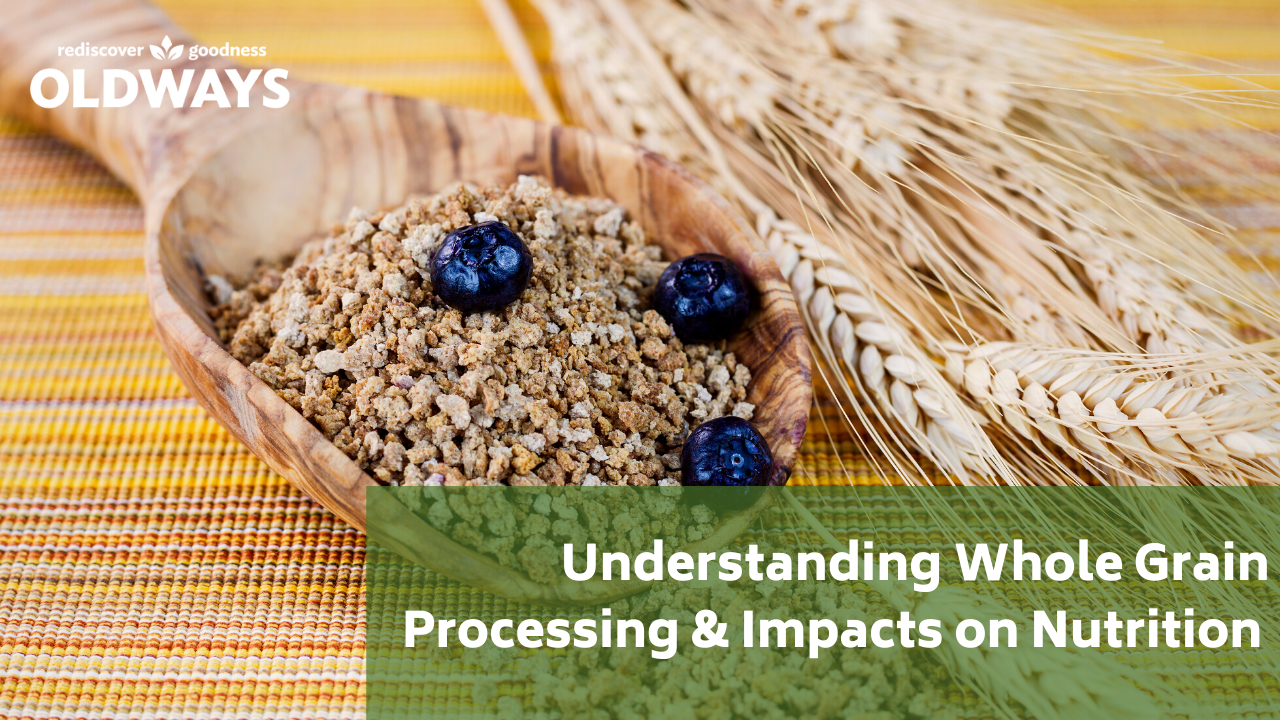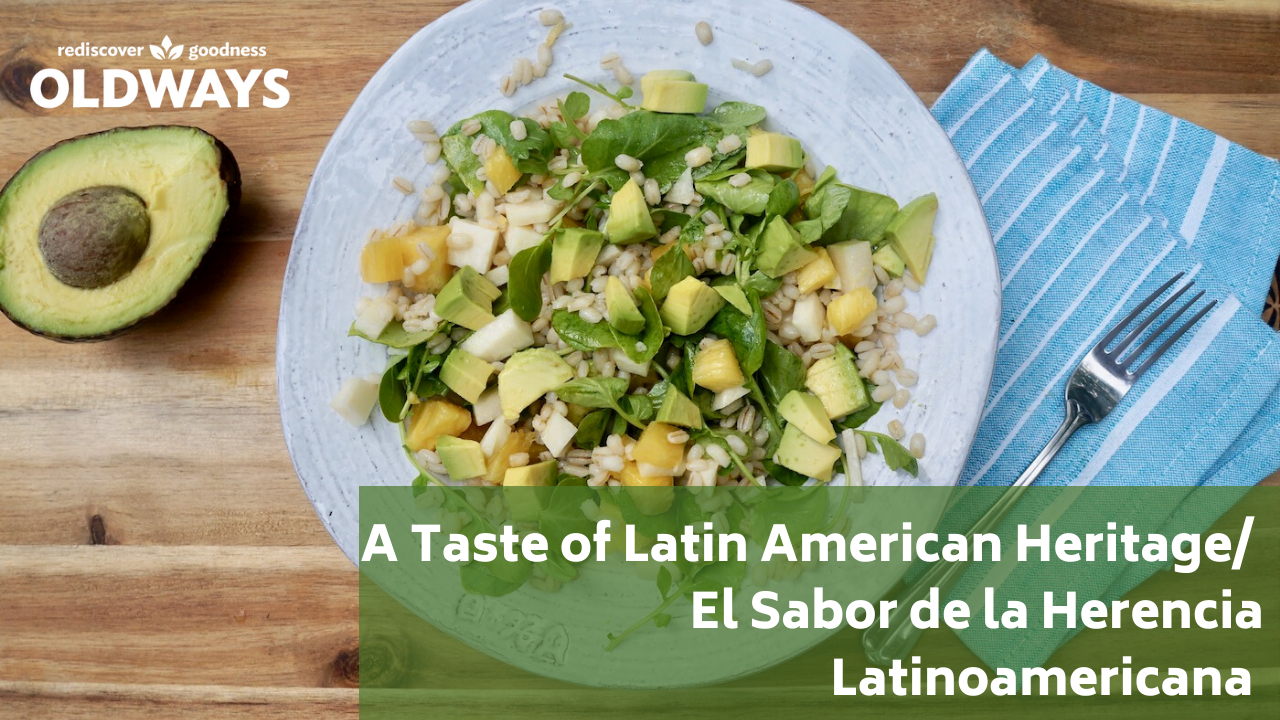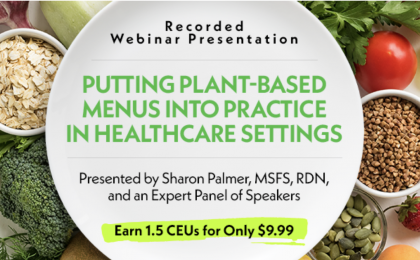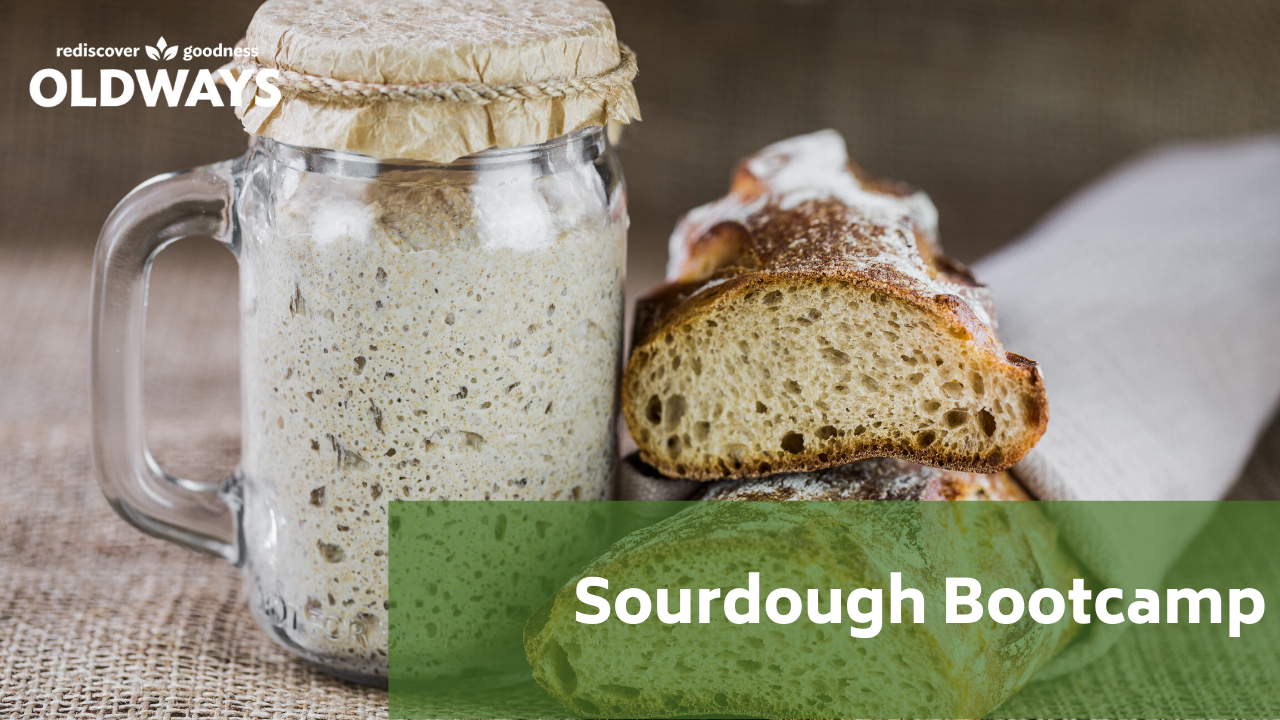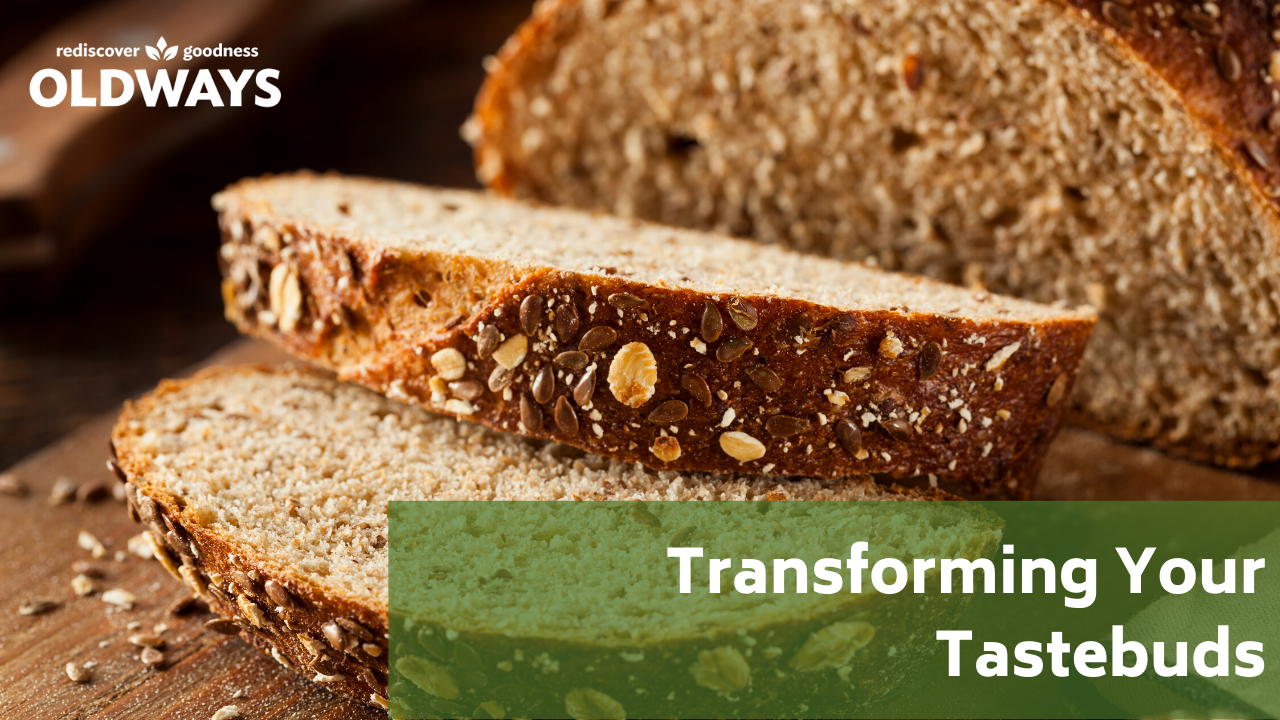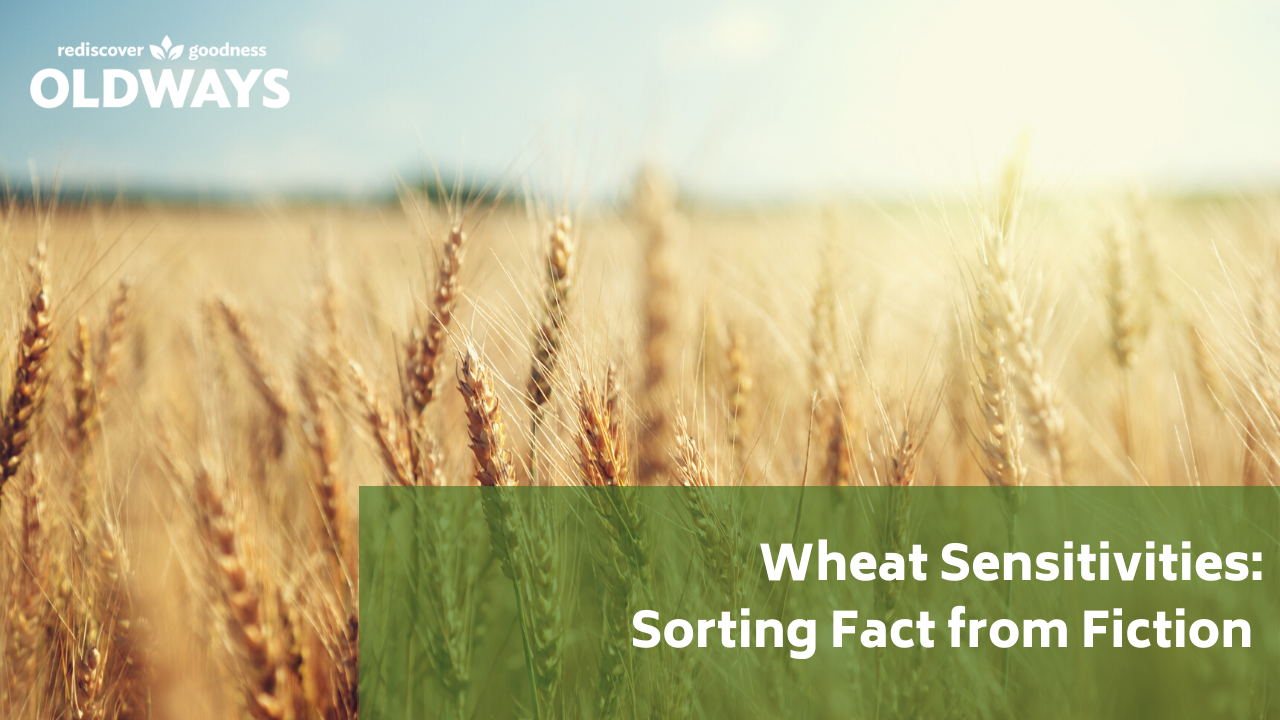Oldways offers a range of Continuing Professional Education programs for dietitians and dietetic technicians, at no charge. These include webinars, conferences, and video proceedings from our conferences. Some dietitians have even used our overseas culinaria programs to earn credits. We welcome your feedback to continually improve the activities/materials offered. RDs may also submit evaluations of the quality of materials to CDR directly by emailing QualityCPE@eatright.org.
Upcoming Webinars
Check back soon for more webinars!
Watch a Webinar Replay
To receive your certificate of completion, please email CPEU@oldwayspt.org and let us know which webinar recording you watched, and any feedback you may have. We welcome your feedback to continually improve the activities/materials offered. RDs may also submit evaluations of the quality of materials to CDR directly by emailing QualityCPE@eatright.org.
Whole Grains for Growing Minds: Nourishing the Next GenerationView video // View PDF of slides Research shows that introducing children to the flavors and textures of whole grains at a young age can help establish healthy habits that will last a lifetime. In this session, Dr. Juliana Cohen, Adjunct Professor of Nutrition at the Harvard School of Public Health, will discuss her research looking at whole grain acceptability in the school lunchroom and share why school lunches offer such an ideal opportunity for exposing kids to whole grains. Sharon Palmer, MSFS, RDN, The Plant-Powered Dietitian will then speak about the nutrition benefits of whole grains in children’s diets and what the recommendations are for different age groups, as well as sharing tips for helping kids get excited about whole grains. This session is one of several events happening worldwide to celebrate International Whole Grain Day.
|
|
Diet & Lifestyle for Cancer Prevention and Survivorship — Evidence over OpinionView video // View PDF of slides Join Karen Collins, MS, RDN, CDN, FAND, Senior Nutrition Advisor to the American Institute for Cancer Research (AICR) and Nigel T. Brockton, PhD, Vice President of Research at AICR, for a webinar spotlighting AICR’s Cancer Prevention Recommendations and the evidence behind them. Since October is Breast Cancer Awareness Month, this session will highlight the particular relevance of the Recommendations to breast cancer prevention and survivorship, in addition to overall cancer risk reduction. Attendees will come away with evidence-based answers and guidance based on comprehensive analyses of the scientific research. This session will also feature practical steps to put the AICR evidence-based Recommendations into practice, and address common misunderstandings. |
|
Ancient, Ancestral, Heritage, Pseudo, and Modern: The Whole Nine GrainsView video // View PDF of slides In this session, Dr. Andrew Ross, leader of the Oregon State University Cereal Quality Program, will give an overview on why increasing whole grains is an underutilized yet important strategy for improving human health. Attendees will learn about the fiber composition in cereals and pseudo cereals and how these fibers impact health through both direct and microbiota mediated pathways. Dr. Ross will also address hot topics in the whole grain community, including gluten and FODMAPs, and help attendees compare the nutritional composition of different grain species. Attendees will walk away being able to better help patients and clients modify their diets to include whole grains for better health outcomes, no matter where individuals may be on their journey to health. |
|
Leveraging Consumer Preferences to Increase Whole Grain Consumption: Findings from the 2023 Whole Grain Consumer Insights SurveyView video // View PDF of slides According to the 2020-2025 Dietary Guidelines for Americans, 98% of Americans are falling short of their recommended whole grain intake. This session will explore newly-released findings from a census-representative survey of American adults about whole grain consumer trends and insights. By learning more about consumer understanding of whole grains and health, product categories in which Americans would like to see more whole grain options, and consumers’ motivations for choosing (or not choosing) whole grain foods, professionals across all sectors of the food and nutrition industry can work together to increase Americans’ whole grain consumption. Attendees will also gain a clearer picture of the identity of the modern whole grain consumer through a brand new consumer profile, developed based on survey results. |
|
Plant-Based Eating to Fight DiabetesView video // View PDF of slides Sharon Palmer, The Plant-Powered Dietitian shares the latest science on how plant-based diets not only help reduce your risk of developing diabetes, they can help manage all types of diabetes, including prediabetes, type 1 and 2 diabetes, and gestational diabetes. In this webinar, Sharon shares the research and background on why a range of plant-based eating patterns may help keep diabetes from taking root, as well as how these eating styles can help control blood glucose levels and reduce health complications if diabetes is already present. In addition, she shares strategies for meal planning and plant-based recipe ideas. |
|
Research Update on African Heritage DietsView video // View PDF of slides // View responses from Q+A chat questions // View Dr. Sterling’s recipes from the Veggie & Soul intervention In honor of Black History Month, this session celebrates the culinary influences of the African Diaspora, and how African heritage foods can be incorporated to reduce health disparities and improve overall nutrition. Dr. Samara Sterling will share research on guidance and best practices for leveraging African Heritage foods to reduce health disparities. Finally, Adante Hart, MPH, RDN, LDN will share a case study of how African Heritage diet interventions can be applied to improve health outcomes. Attendees will walk away better equipped to support clients’ cultural preferences. |
|
Understanding the Proposed FDA Healthy Definition: Implications for Dietetic PracticeView video // View PDF of slides The FDA’s definition of healthy is being updated for the first time in nearly 30 years. In this session, Kristin Rubin, PhD, the global head of nutrition for KIND Snacks, will detail the key changes that are under consideration by the FDA and their implications for dietetic practice and labeling. Kelly LeBlanc, MLA, RD, LDN, the director of Nutrition at Oldways, will also explore the unintended consequences of our current labeling landscape, the complexity of pursuing a single definition of healthy, and why it is imperative that dietitians take part in these conversations. The session will close with a sneak peek at how this definition is likely to be applied in a retail setting and will show dietitians practical ways to engage on this issue and make their voices heard. Thank you to KIND Snacks for sponsoring this session! |
|
Whole Grain & Diabetes: Reducing the Risk and Implications to HealthcareView video // View PDF of slides In honor of World Diabetes Day on November 14th join us to learn more about the role whole grains can play in both risk reduction and economic healthcare benefits. The first half of this webinar will showcase new findings on the association between whole grain consumption and reduced risk of type 2 diabetes. The second half of the webinar will highlight cost savings related to whole grain and type 2 diabetes. Woven throughout will also be practical applications for encouraging whole grain consumption through simple, affordable changes to dietary habits. Thanks to the General Mills Bell Institute for Health and Nutrition for sponsoring this session! |
|
Whole Grains and Ancient Grains: A Fit for Positive Nutrition and Today’s Consumer TrendsView video // View PDF of slides There’s a mind-shift when it comes to nutrition, especially within today’s consumer base. We call this “positive nutrition” which is a shift towards seeking ingredients that have stories or health halos and foods that are perceived as wholesome, as opposed to having specific nutrient content claims. Plant-based, gluten-free, chickpea, quinoa, ancient grains, whole grains are all examples of ingredients that offer positive nutrition that resonate with today’s consumer. They are also open to unique flavors and textures and have been exposed to a diversity of foods at a young age. For innovation within the food industry, it’s no longer just about offering vegan patties. Today’s consumer also demonstrates purposeful or enlightened eating behavior that is concerned with where their food comes from, what’s in it, and seeks labels such as those promoting plant-based, ancient grains, whole grains, and more. This brings new opportunities to increase whole grains in the diet like never before. (Thanks to our friends at Ardent Mills for sponsoring this session!) |
|
Putting Plant-Based Diets on the Menu in HealthcareView video // View PDF of slides Forty percent of Americans are trying to incorporate more plant foods in their diets, for health and environmental benefits. As this trend moves into healthcare, dietitians are the changemakers helping hospitals provide healthier more sustainable foods that keep up with consumer trends. In this session, attendees will learn the latest trends, relevant case studies, best practices, and resources for offering plant-based menu options in healthcare settings, as well as how to comply with relevant legislation in the states that mandate plant-based hospital meals. |
|
A Spoonful of Olive Oil Makes the Vegetables Go Down: The Health Benefits of Cooking with EVOOView video (62 minutes) // View PDF of slides // View the Q&A Consumers are often concerned that you can’t cook with extra virgin olive oil and that doing so will lead to weight gain. To help set the record straight, Dr. Rosa Lamuela-Raventos of the University of Barcelona will share research on how heating and cooking with extra virgin olive oil not only is safe and but positively impacts nutritional composition of prepared foods. Dr. Frank Hu of the Harvard T.H. Chan School of Public Health will also share research on the health benefits of olive oil with respect weight maintenance and longevity. To help put all this research into practice, Joseph R. Profaci, Executive Director of the North American Olive Oil Association, will provide a quick “Olive Oil 101” on what you need to know when you shop for olive oils. Thanks to our friends at the NAOOA for sponsoring this session! |
|
The Secret’s Out: Sorghum is the Sustainable Ancient Grain RDs are Buzzing AboutView video (48 minutes) // View PDF of slides With just three crops providing more than 40% of calories eaten worldwide, registered dietitians have a vital role to play in shifting diets towards sustainable, biodiverse options. Whole grain sorghum has twice as much fiber as brown rice, thrives in climate-challenged regions, and is a staple of cultural food traditions throughout the African Diaspora, and yet this ancient grain is still underutilized in Western diets. In this session, attendees will learn about the nutritional makeup of whole grain sorghum and how it can be used in simple, delicious meals to help prevent and manage diet-related illness. This session will also explore how the biologic makeup of sorghum can help reduce water losses and provide valuable nutrition in hot, dry climates. Thank you to our friends at the United Sorghum Checkoff Program for sponsoring this session!
|
|
Expert Tips for Crave-Worthy Food PhotographyView video (1 hour, 12 minutes) // View PDF of slides We eat with our eyes first, so food photos need to be enticing and scroll-stopping with a quick glance in order to break through. In this session, experts will share best practices throughout the entire styling, photographing, and editing process using challenging-to-capture whole grain foods as a case study. Food photographer Kristin Tieg will share tips for food styling, composition and how to use props and lighting to present each dish in its most beautiful form. Cookbook author and social media expert Sharon Palmer will share her favorite tips, tools, and tricks for photographing food at home, while dining out, or while traveling. Graphic designer Alexis Evangelos will share tips for photo editing, and how the brightness, contrast, shadows, and coloring can be adjusted to optimize each photo using both mobile and desktop tools. At the end of the session, Caroline Sluyter of the Oldways Whole Grains Council will share how attendees can practice the food photography skills they learned throughout Whole Grains Month in September for a chance to win prizes. |
|
|
|
Food for a Healthier Planet: Expert Panel on Sustainability and NutritionView video (1 hour, 1 minute) // View PDF of Slides Walter Willett, MD, MRPH, Sharon Palmer, RDN, MS, and Kelly LeBlanc, MLA, RD, LDN The best dietary advice on the planet is meaningless if we aren’t able to produce or access the foods recommended for health. As key gatekeepers in our food system, registered dietitians are well-positioned to be leaders in the shift towards environmentally-conscious diets. In this session, Walter Willett, MD, DrPH of the Harvard T.H. Chan School of Public Health and lead author of the groundbreaking EAT Lancet report will reveal what science tells us about the overlap between human and planetary health. Sharon Palmer, MS, RDN, the Plant-Powered Dietitian, will close with practical strategies to help support patients and clients on their journey to healthier, more sustainable eating. These experts will share best practices and help dietitians translate emerging research in sustainability and nutrition into actionable, easy-to-understand messages for people no matter where they’re starting their journey. |
From Policy to Plate: The Role of Child Nutrition Programs in Filling Nutrition Gaps and Promoting Whole Grain IntakeView video (1 hour, 1 minute) // View PDF of Slides Federal nutrition programs such as the National School Lunch Program (NSLP), the School Breakfast Program (SBP), the Child and Adult Care Food Program (CACFP), and the Special Supplemental Nutrition Program for Women, Infants and Children (WIC) help ensure kids have access to nutritious foods and can help participants meet dietary recommendations. Each program has a whole grain requirement; but overall, kids’ intakes of whole grains fall short of recommendations. Promoting higher whole grain intakes through participation in Child Nutrition Programs can help kids establish a healthier eating pattern in recognition of whole grain’s health benefits. How can we promote whole grain intake and what is the role of policy in in helping kids meet dietary guidance? |
|
Communicating Whole Grain Content to ShoppersView video (1 hour) // View PDF of Slides Caroline Sluyter, Director of the Whole Grains Council, Oldways, Kelly LeBlanc, MLA, RD, LDN, Director of Nutrition, Oldways In this session, experts at the Oldways Whole Grains Council will share insights from a newly-published study of Whole Grain Stamped products, and what this research reveals about whole grain trends over time in both the U.S. and Latin America. The speakers will also dive into findings from the 2021 Whole Grain Consumer Insights Survey to share what consumers are looking for on the label when they are shopping for whole grain foods, and what other product attributes are important to shoppers in addition to whole grain content. Finally, this session will close with a brief overview of regulatory differences in whole grain labeling across a few key international markets and how these differences impact making whole grain content claims. |
|
The Latest in Plant-Based Omega-3 ALA Research and Nutrition Education Approaches to Meet Generational NeedsView video (1 hour, 3 minutes) // View PDF of Slides Health professionals and educators know that omega-3s provide significant health benefits. However, did you know that more than 90% of Americans are not meeting the recommended omega-3 intake and many are confused about the health benefits of EPA, DHA, and ALA? Join us for an informative and interactive webinar providing the latest research supporting plant-based omega-3 ALA consumption from Gretchen Vannice, MS, RDN, global expert in omega-3 fatty acid nutrition. You’ll learn how to apply research and develop engaging education content for all generations from seasoned nutrition entrepreneurs Cara Harbstreet, MS, RDN, LD of Street Smart Nutrition and Megan Boitano, MS, RDN, LDN founder of RD2RD. At the end of the webinar, you will have the opportunity to take what you learned and submit your own research-based education content for a chance to win upwards of $2,000 to support content dissemination and a featured spotlight in RD2RD’s Free Download of the Week. Thanks to our friends at the California Walnut Commission for sponsoring this session! |
|
Shaking Up the BreadbasketView video (1 hour) // View PDF of Slides Biodiversity is an essential element of a healthy food system, and yet just three crops (wheat, rice, and corn) provide more than 40% of the calories eaten worldwide. In this session, Shane Frederick, Manager of Strategic Programs for the Specialty Soya and Grains Alliance will introduce how farmers and dietitians can work together to better integrate ancient grains into our food supply. Laurie Scanlin, Principal Scientist at Ardent Mills will demonstrate how ancient grains have been adapted to the climate over time and will highlight consumer trends for ancient grains and innovative new applications for ancient grains. Her presentation will also review the importance of including more ancient grains from an environmental, nutritional, and economic perspective. Lastly, Neil Doty, Business Development Manager for Northern Crops Institute, will reveal insights from the product development side on how foods can be reformulated with ancient grains, and how dietitians can be a part of the solution. Thanks to our friends at the Specialty Soya and Grains Alliance for sponsoring this session. |
|
Brain Health & The Mediterranean DietView video (1 hour) // View PDF of Slides This webinar will discover the secrets of how diet affects the brain. To begin, Dr. Samara Sterling will share an inside look into how specific foods and components of the Mediterranean diet can improve cognitive and mental health processes with a deep dive into newly published research. We will look at affordable and sustainable ways to incorporate the Mediterranean diet in your lifestyle using accessible foods like peanuts to benefit brain health. To close, Amber Pankonin, MS, RD, LMNT, will lead a demonstration of unique and tasty culinary creations, discussing how a Mediterranean diet can be easily incorporated in our daily routines. Thanks to The Peanut Institute for sponsoring this webinar! |
|
The Economics of Whole Grain and Public Health—The Impact and Application of Eating More Whole GrainsView video (58 minutes) // View PDF of Slides The health benefits of consuming a diet rich in whole grain is fairly well recognized, but what about the economic benefits? The first half of this webinar will showcase newly published data on the economic impact of whole grain intake on public health and health endpoints. The second half of the webinar will focus on putting this data into practice by sharing practical applications for encouraging whole grain consumption through simple, affordable changes to dietary habits. Thanks to the General Mills Bell Institute for Health and Nutrition for sponsoring this session! |
|
The Whole Grain Picture: Sharing the Science Behind OatsView video (58 minutes) // View PDF of Slides Oats are one of the most popular whole grains in America, and the abundant choices (old fashioned, steel cut, instant, etc.) can leave some shoppers confused. In this session, Dr. YiFang Chu, Director of Health & Nutrition Sciences at PepsiCo will share the science and research behind oat milling and oat nutrition. Registered Dietitian, Dawn Jackson Blatner, will then share tips for how to communicate these nutritional nuances to clients to support increased whole grain and oat consumption. (Thanks to The Quaker Oats Company, which is a unit of PepsiCo, Inc., for sponsoring this session!) |
|
The Dietitian’s Guide to Raw Milk CheeseView video (1 hour, 2 minutes) // View PDF of Slides Unlike raw milk, which is served fresh and associated with food safety risks, raw milk cheese-making is a traditional preservation method, where good bacteria is nurtured to crowd out the bad bacteria. In this session, Carlos Yescas, a traditional and raw milk cheese expert, will give dietitians an update on raw milk cheese regulations in the United States and review which popular cheeses are traditionally made with raw milk. Carlos will also explain the difference between raw, unpasteurized, and pasteurized cheese, and how the pasteurization process impacts cheese flavor and microbial activity. Kelly (Toups) LeBlanc, MLA, RD, LDN will close with guidance on cheese intake during pregnancy and will give a research update on raw milk cheese and the microbiome, and how traditional, artisanal cheeses fit into a healthy diet.
|
|
Honey Bee’s Impact on Our Food Supply & Honey in the Mediterranean DietView video (1 hour, 2 minutes) // View PDF of Slides The hardworking honey bee is responsible for more than 35% of the foods we eat and the honey we enjoy, including pollinating more than 90 different crops. This webinar explores their impact on our planet and food supply, as well as the art of beekeeping, and how honey is made. Dietitians will learn how food choices can impact pollinator health and environmental sustainability. Attendees will also learn about preliminary findings of new modeling research on a Mediterranean style diet and how simple honey-food pairing substitutions can help people eat key foods that are central to this diet pattern. (Thanks to the National Honey Board for sponsoring this session!) |
|
|
|
Understanding the Role of Pasta in a Healthy DietView video (1 hour, 1 minute) // View PDF of Slides Pasta is a staple in the Mediterranean Diet, and an ancient food that has been nourishing, sustaining and captivating the people in this region as well as people all over the world for hundreds of years. In this session, Diane Welland, MS, RD will share why this beloved food has become so important to our culture, both nutritionally and socially. This session will also reveal the newest research around pasta related to diet quality, weight status and other health outcomes as well as pasta’s role in the 2020 US Dietary Guidelines and current and up-and-coming food trends. Attendees will learn how the traditional pasta making process impacts blood sugar response and how to teach clients how to create affordable healthy pasta recipes at home. (Thanks to our friends at the National Pasta Association for sponsoring this session!) |
|
|
The RD’s Role in Dental Health: How Traditional Diets Can Support Strong TeethView video (58 minutes) // View PDF of Slides (Recorded on May 6, 2021. Viewing the recording of this presentation is eligible for CPEU credit until May 6, 2024) This session from Ellen Karlin MMSc, RDN, LDN, FADA and Sara Karlin, DDS enables registered dietitians and nutrition professionals to understand the bi-directional relationship between diet and oral health. Emerging science has identified several key nutritional components which are essential for oral health promotion and oral disease prevention. Nutritional counseling in the dental office provides dental patients with the critical information they need to maintain healthy teeth and gums and prevent oral infectious diseases. Research shows us that cultural factors and lifestyle influence food choices and must be taken into consideration in order to individualize nutritional guidance to dental patients. This course presents a comprehensive program for incorporating nutritional screening and counseling from a registered dietitian, into existing dental practices. Attendees learn the scientific evidence surrounding the impact of traditional eating patterns on the oral cavity and its impact on dental treatment outcomes. Discover chair-side confidence needed to provide nutritional counseling to dental patients. |
|
|
How Retail Dietitians Create Value with Mediterranean Family MealsView Video (1 hour, 1 minute) // View PDF of slides (Recorded on March 9, 2021. Viewing the recording of this presentation is eligible for CPEU credit until March 9, 2024) To open this session, Kelly Toups, MLA, RD, LDN, Oldways’ director of nutrition, gives an overview of the key characteristics of a research-backed Mediterranean Diet, shares ways that health research can be communicated in retail, and shares free Mediterranean Diet resources available to dietitians. Leading retail dietitians Ellie Wilson, MS, RDN, CDN, senior nutritionist at Price Chopper, and Heather Lieber, RDN, CD, of Harmons Grocery, spotlight how to help create value throughout International Mediterranean Diet Month in May, including practical tips for leveraging digital channels, collaborating with different store departments, getting kids involved in meal preparation, measuring ROI, and easy, budget-friendly meal strategies to promote with customers. Krystal Register, MS, RDN, LDN, director of health & well-being at FMI, closes with research on the benefits of family meals as well as consumer trends data to support the continued opportunity to help shoppers embrace Mediterranean meal solutions at home together. |
Unlocking the Cardiovascular Benefits of TeaView Video (1 hour, 8 minutes) // View PDF of slides (9 MB) (Recorded on January 27, 2021. Viewing the recording of this presentation is eligible for CPEU credit until January 27. 2024) Tea is the 2nd most consumed beverage in the world and has long been associated with providing health benefits, and new research helps us understand why. In this webinar, Mr. Alexander White, a master tea brewer covers the culinary aspects of Camellia sinensis, true tea. He provides an overview of cultivars of tea and agricultural practices to produce the various teas commonly found in the marketplace and he invites you taste along with him. Dr. Joy Dubost then provides a research overview of flavonoids, their importance, and how unsweetened tea contributes to flavonoids in the diet. Finally, Dr. Taylor Wallace presents the results from two recent systematic reviews of randomized controlled trials and prospective cohort studies, which explore the connections between tea and heart health. (Thanks to Unilever for sponsoring this session!) |
|
Early Infant Feeding: A Window to Prevent Food AllergiesView Video (1 hour) // View PDF of slides (5 MB) (Recorded on January 28, 2021. Viewing the recording of this presentation is eligible for CPEU credit until January 28. 2024) This webinar is the highly anticipated follow up session to our December 2020 webinar, Maternal and Early Child Feeding: The Impact of Nutrition on Food Allergy Development Pre-birth Through 2 Years. Recent research has changed the recommendations for feeding infants. Following the groundbreaking LEAP (Learning Early About Peanut allergies) study, international consensus recommended introducing peanut foods to prevent peanut allergies. Subsequently released research findings have given support to the introduction of egg for allergy prevention too. In this session, infant feeding experts Sherry Coleman Collins, MS, RDN, LD and Malina Malkani, MS, RDN, CDN walk attendees through the latest research and guidelines on preventing food allergies. This session also features an introduction to a new category of grocery products, food allergy prevention foods for babies and toddlers, and a discussion on easy ways to introduce common allergens to infants safely. (Thanks to the National Peanut Board for sponsoring this session!) |
|
|
|
Curry, Dal, and Ghee: Meeting the Needs of Indian PatientsView Video (1 hour) // View PDF of slides (Recorded on December 10, 2020. Viewing the recording of this presentation is eligible for CPEU credit until December 10, 2023) The most effective nutrition therapies are those that work within cultural preferences and practices, rather than against them. In this session, Madhu Gadia, RD, CDE, author of New Indian Home Cooking and The Indian Vegan Kitchen, will take dietitians on a journey throughout Indian and South Asian food traditions and wellness practices (such as ayurvedic medicine), so that dietitians can better meet the needs of their Indian patients. Madhu will show dietitians how to avoid common missteps and avoid insensitivities, and will show how traditional Indian foods can be used to help improve patients’ diets. |
|
|
Maternal and Early Child Feeding: The Impact of Nutrition on Food Allergy Development Pre-birth Through 2 YearsView Video (1 hour 2 minutes) // View PDF of slides (16 MB) (Recorded on December 3, 2020. Viewing the recording of this presentation is eligible for CPEU credit until December 3, 2023) Much attention has been paid to maternal diet, breastfeeding, and early child nutrition and child development and health. In this session, infant feeding expert Sherry Coleman Collins, MS, RDN, LD, reviews some of the relevant research on how mother’s diet influences the development of food allergies and potential opportunities for intervention, including diet diversity and inclusion of common food allergens in the diet of mothers and babies. In addition, the presenter discusses the inclusion of feeding advice for children age 0-2 years relative to food allergy prevention in the recently released Dietary Guidelines for Americans’ scientific report. Thanks to the National Peanut Board for sponsoring this session!
|
|
|
Understanding Whole Grain Processing and Impacts on NutritionView Video (1 hour 3 minutes) // View PDF of slides (18 MB) (Recorded on November 19, 2020. Viewing the recording of this presentation is eligible for CPEU credit until November 19, 2023) Whole grains are an important part of a balanced diet, yet many Americans are still falling short of dietary recommendations for whole grain consumption. In this session, Dr. Caleigh Sawicki from the Gerald J. and Dorothy R. Friedman School of Nutrition Science and Policy at Tufts University, shares updates on the health benefits of whole grains and why whole grains were an especially important part of the report of the 2020 Dietary Guidelines Scientific Advisory Committee. Additionally, Dr. Eric Decker, Professor and Head of the Department of Food Science at the University of Massachusetts, shares research on how various processing methods impact the health of whole grains. The session closes with practical tips on how to help patients and clients meet the dietary recommendations for whole grains. Thanks to the General Mills Bell Institute for Health and Nutrition for sponsoring this session! |
|
|
The RD’s Guide to Cultural Humility WebinarView Video (1 hour 20 minutes) // Download Slides (7.9 MB) (Recorded on August 12, 2020. Viewing the recording of this presentation is eligible for CPEU credit until August 12, 2023) In this session, Oldways President Sara Baer-Sinnott introduces a panel of three leading experts to explore racial and cultural health inequities, cultural humility, and healthy food traditions from across Asia, Latin America, and the African Diaspora. Panelists include Ka Hei Karen Lau, MS, RD, LDN CDE, Registered Dietitian and Certified Diabetes Educator, Joslin Diabetes Center; Sylvia Klinger, DBA, MS, RD, LDN, CPT, founder, Hispanic Food Communications; and Constance Brown-Riggs, MSEd, RD, CDE, CDN, president and owner, CBR Nutrition Enterprises. |
|
|
A Taste of Latin American Heritage/ El Sabor de la Herencia Latinoamericana WebinarEnglish: View Video (54 minutes) // Download PDF of slides (9.5 MB) Español: Ver Video (58 minutos) // Descargar PowerPoint (9.5 MB) (Recorded on July 14, 2020. Viewing the recording of this presentation is eligible for CPEU credit until July 14, 2023) In this session, Sara Baer-Sinnott (President, Oldways), Hannia Campos, PhD (Visiting Scientist, Harvard T.H. Chan School of Public Health), and Sylvia Klinger, DBA, MS, RD, LDN, CPT (founder, Hispanic Food Communications) explore nutrition and health disparities in Latin American Communities, as well as highlight the healthy food traditions of Latin America. This webinar also serves as a great primer for those interested in teaching Oldways’ A Taste of Latin American Heritage cooking and nutrition classes, as well as anyone passionate about reducing health inequities. En esta sesión, Carlos Yescas, Hannia Campos, y Sylvia Klinger explorarán las disparidades de nutrición y salud en las comunidades latinoamericanas, así como destacarán las tradiciones alimentarias saludables de América Latina. Este seminario web también servirá como una excelente introducción para aquellos interesados en enseñar las clases de cocina y nutrición de Oldways ‘El Sabor de la Herencia Latinoamericana,’ así como para cualquier persona apasionada por reducir las inequidades en salud.
|
Other CPEU Opportunities
|
|
Culinaria TravelImmerse yourself in delicious and nutritious global diets. Our tour groups travel with acclaimed chefs, and include carefully curated week-long itineraries filled with unforgettable cultural and culinary experiences. CPEU hours vary from trip to trip, and often are eligible for more than a dozen hours. |
|
|
Today’s Dietitian WebinarLearn more about plant-based eating, including in the hospital setting. |
Archived Webinars
Archived Webinars
Sourdough Bootcamp: How (and Why) to Create a Whole Grain Sourdough Starter…and What to Do with ItView Video (1 hour) // View PDF of slides (3.2 MB) (Recorded on June 30, 2020. Viewing the recording of this presentation is eligible for CPEU credit until June 30, 2023) Whether you’ve been impacted by the shortage of yeast, or you find yourself spending more time at home and are interested in taking on some baking experiments, there has never been a better time to give sourdough baking a try. Did you know that sourdough starters fed different types of flour (whole wheat flour, einkorn flour, rye flour, buckwheat flour, etc.) can have different aromas, bacterial communities, and baking capabilities? In this presentation, Dr. Erin McKenney, PhD, Teaching Faculty and Academic Coordinator for the department of Applied Ecology, North Carolina State University, takes a deep dive into the nutritional and microbial benefits of sourdough fermentation, with a special focus on whole grains. The webinar concludes by offering a sneak peek at some of our favorite whole grain sourdough recipes, and where home bakers and fermentation enthusiasts can learn more about these topics. |
|
Transforming Your Taste Buds: How to Make Whole Grains the Food You CraveView Video (1 hour) // View PDF of slides (409 KB) (Recorded on May 8, 2020. Viewing the recording of this presentation is eligible for CPEU credit until May 8, 2023) Contrary to popular belief, our food preferences are not set in stone. They can evolve over time, in response to social and cultural cues, as well as exposure to different foods and flavors. In this webinar, Dr. Keith Williams, Director, Feeding Program, Penn State Hershey Medical Center, shares evidence-based techniques for making picky eaters a thing of the past, with a focus on how to apply these lessons to increase whole grain consumption across all age groups. |
|
Wheat Sensitivities: Sorting Fact from FictionView Video (52 minutes) // View PDF of slides (5.5 MB) (Recorded April 15, 2020. Viewing these recordings is eligible for CPEU credit until April 15, 2023) Some books and celebrities blame “modern wheat” for the perceived rise in gluten-related and wheat-related disorders, and yet research shows that this relationship is more complex than it may seem. In this webinar, Dr. Lisa Kissing Kucek, Plant Research Geneticist, USDA-ARS, discusses the differences between ancient, heritage and modern wheats and how they may impact immunoreactive compounds. This session also explores which processing methods show promise with regards to wheat sensitivities and provide tips for producing healthy whole grain foods that people of all backgrounds and health concerns can enjoy. |
|


